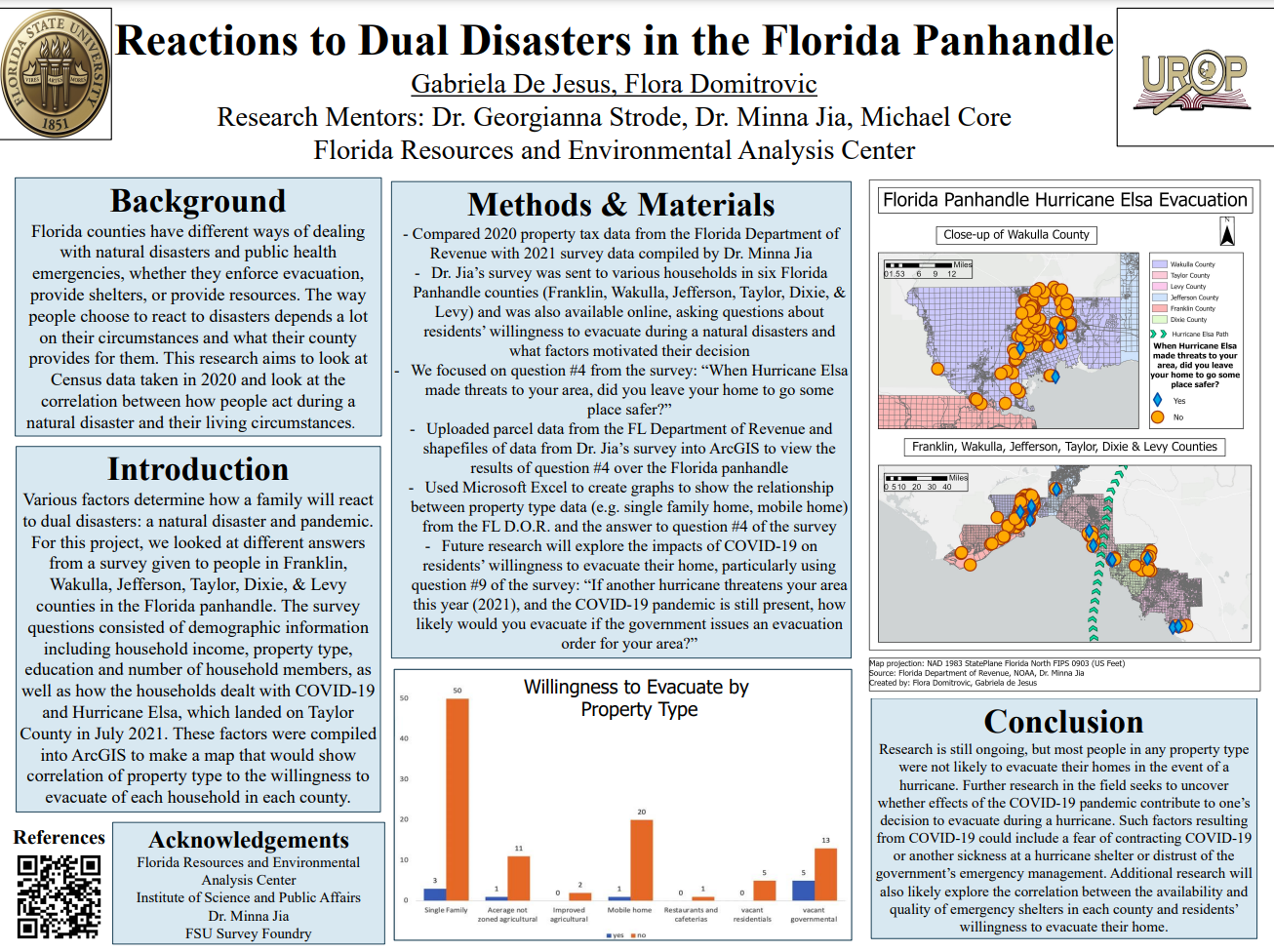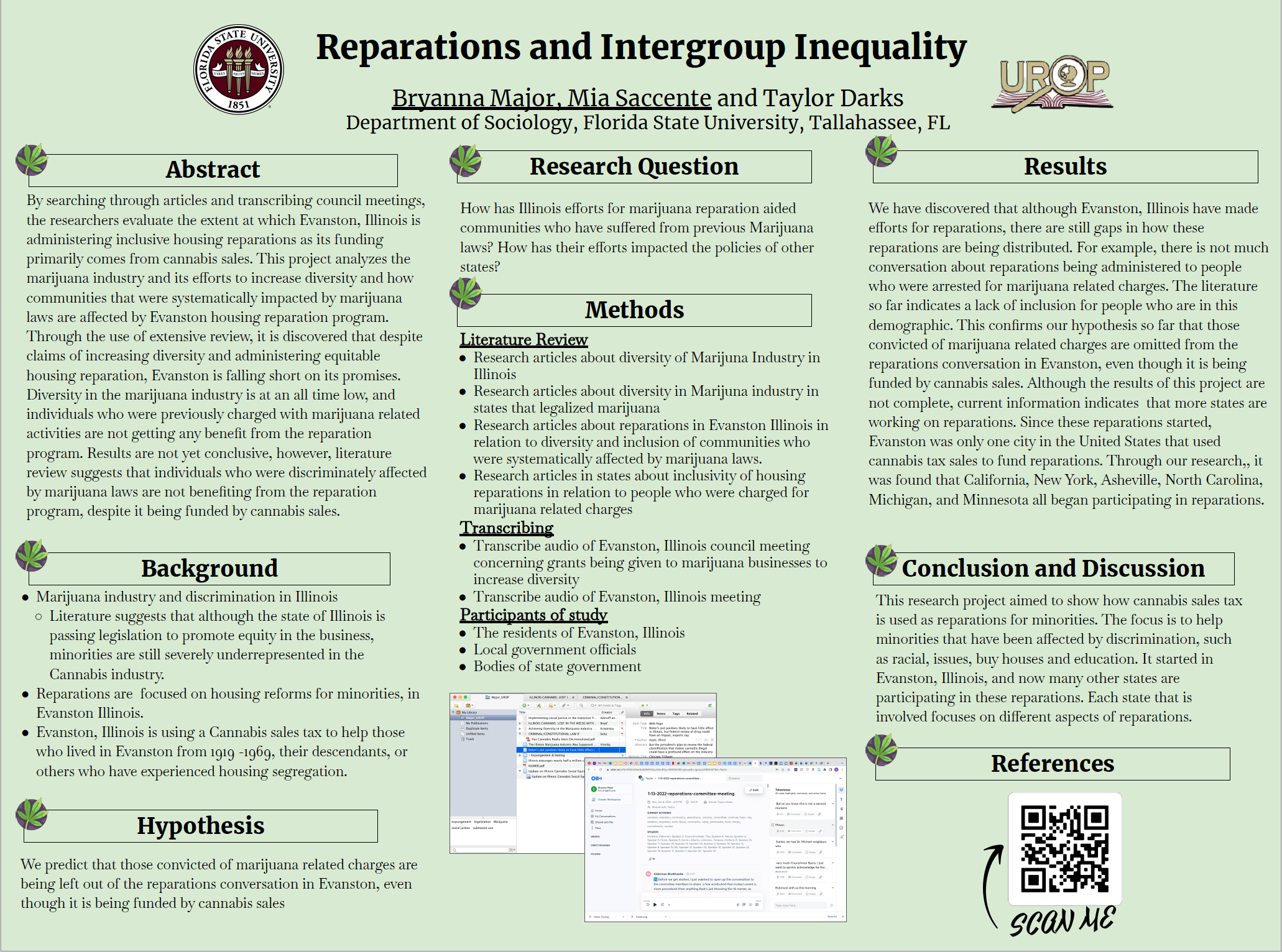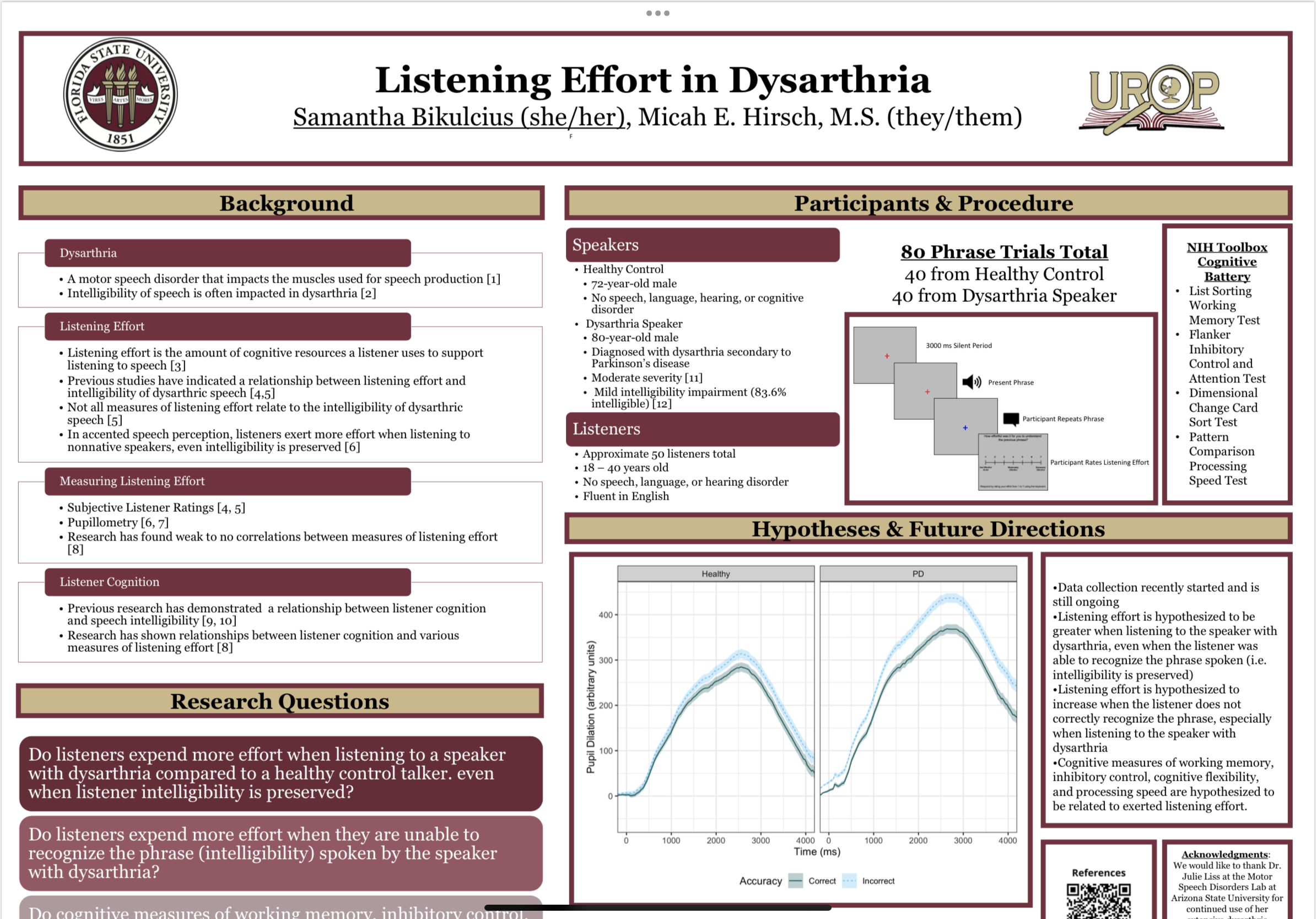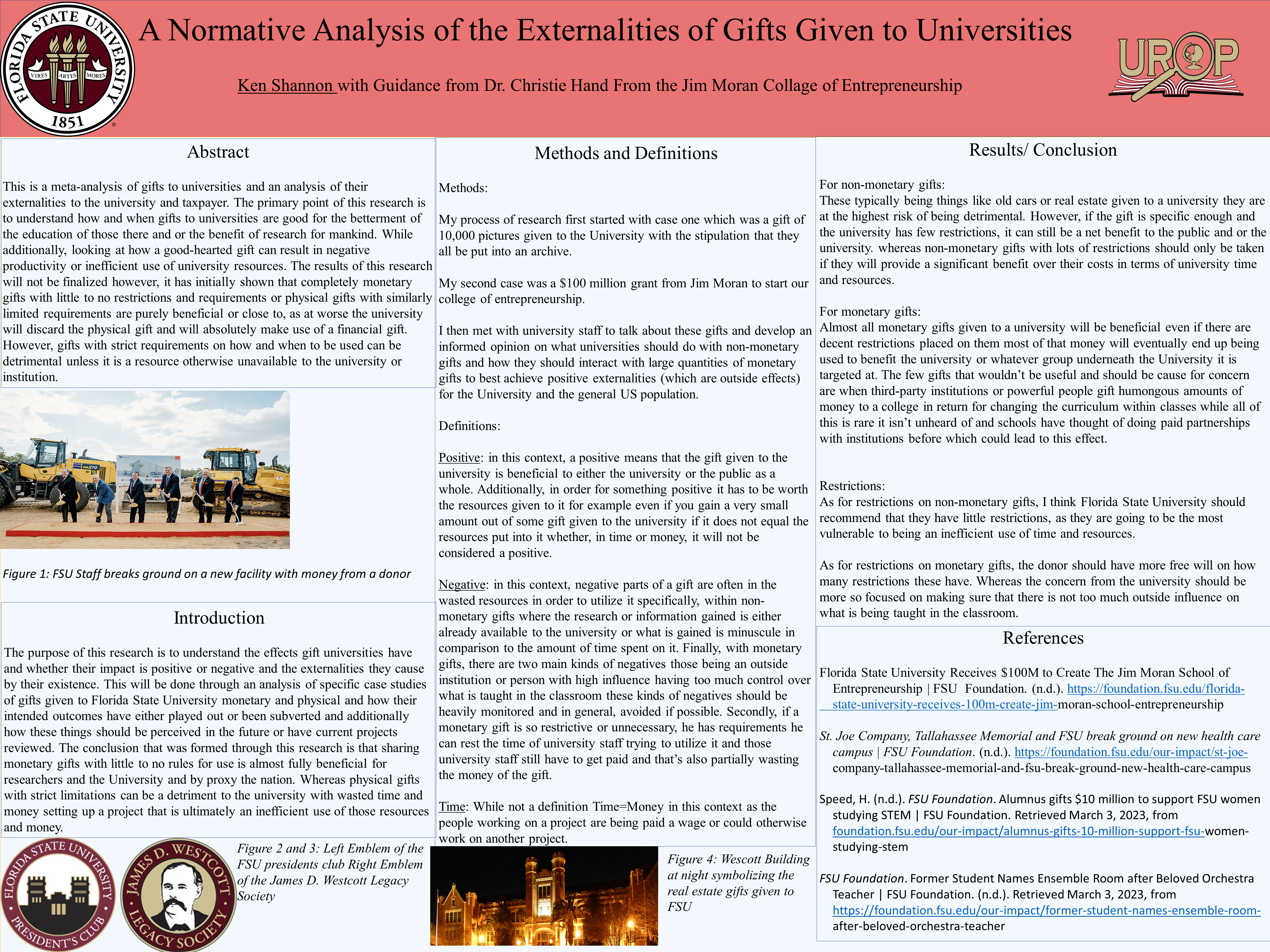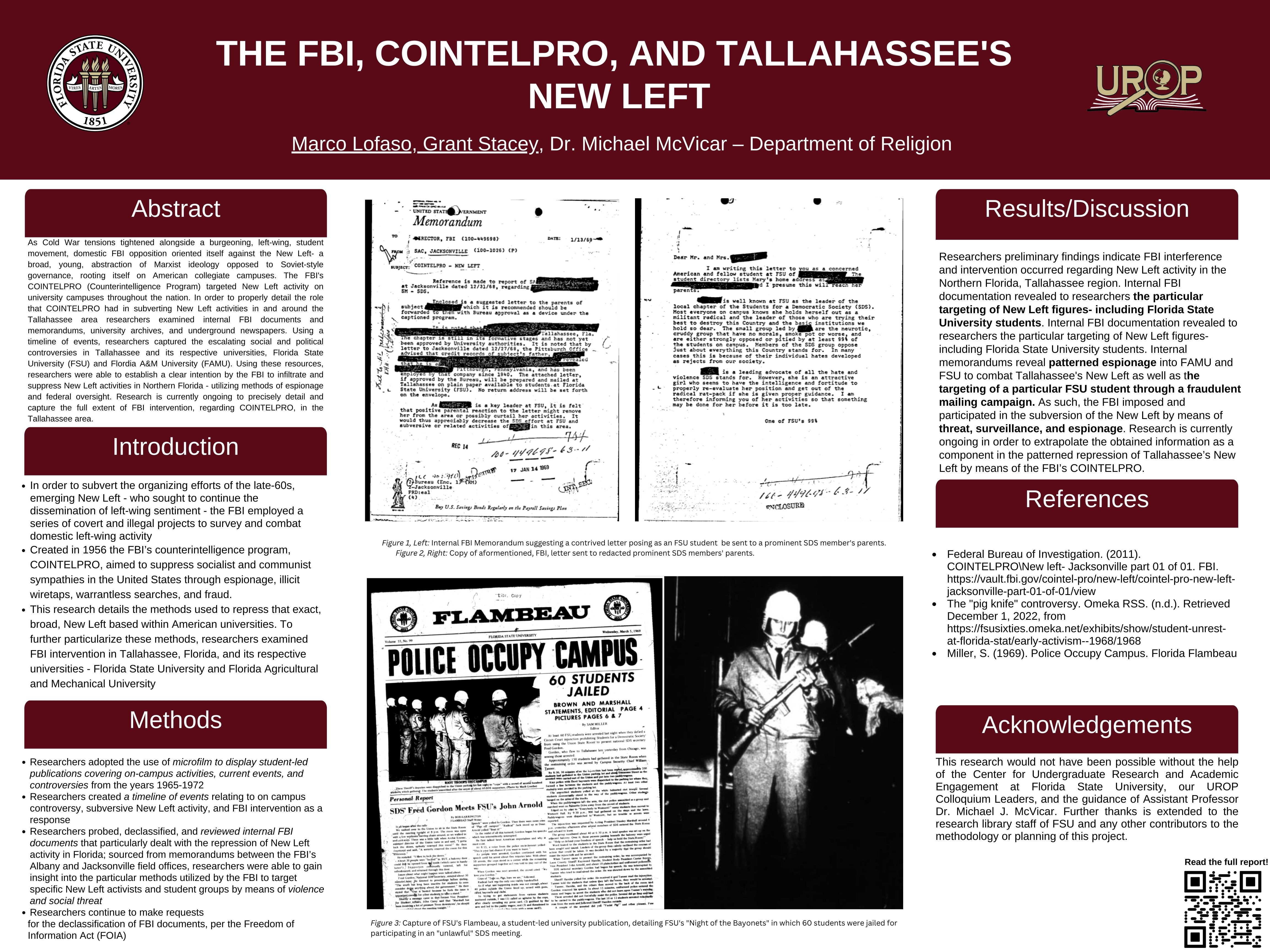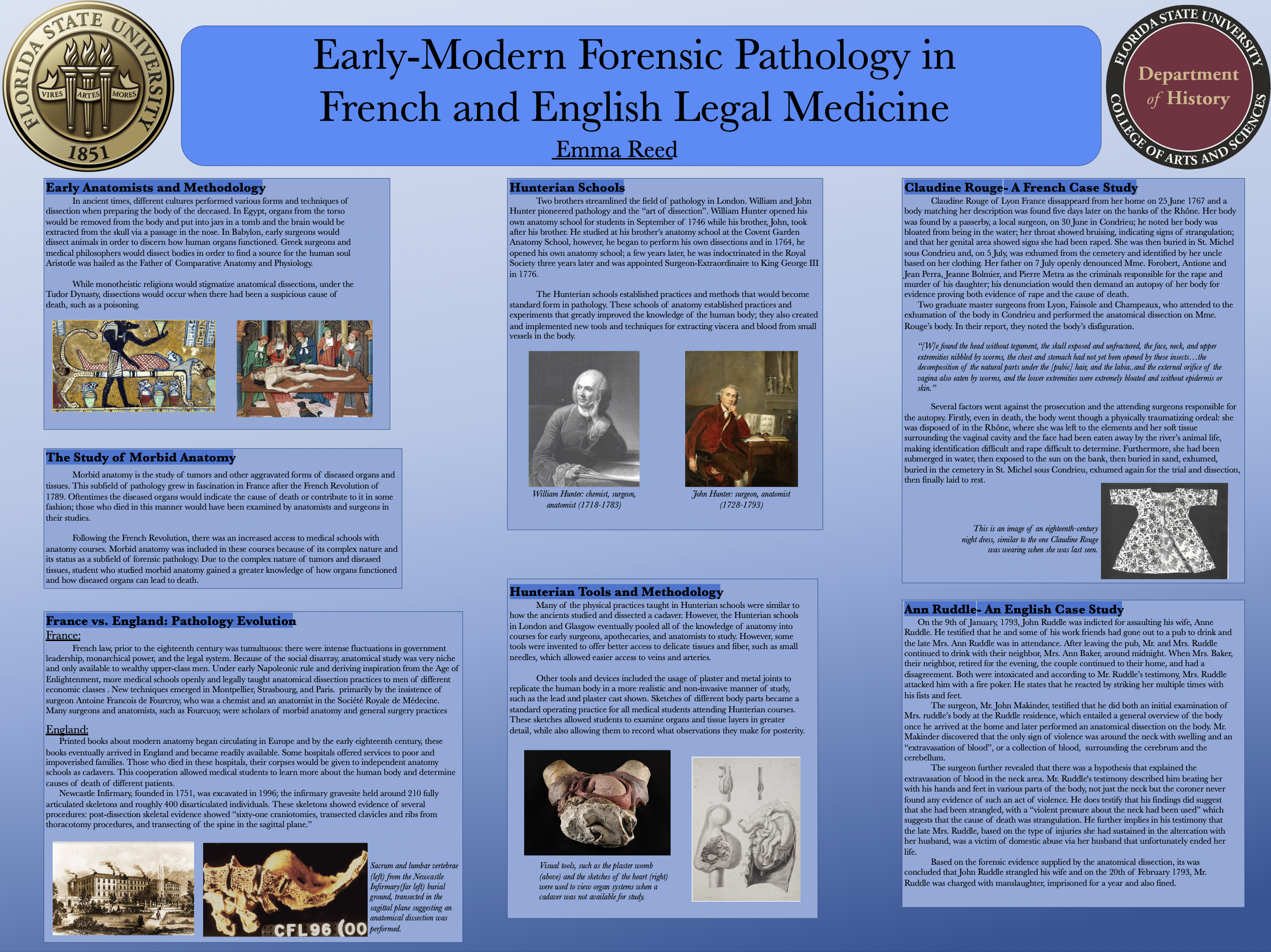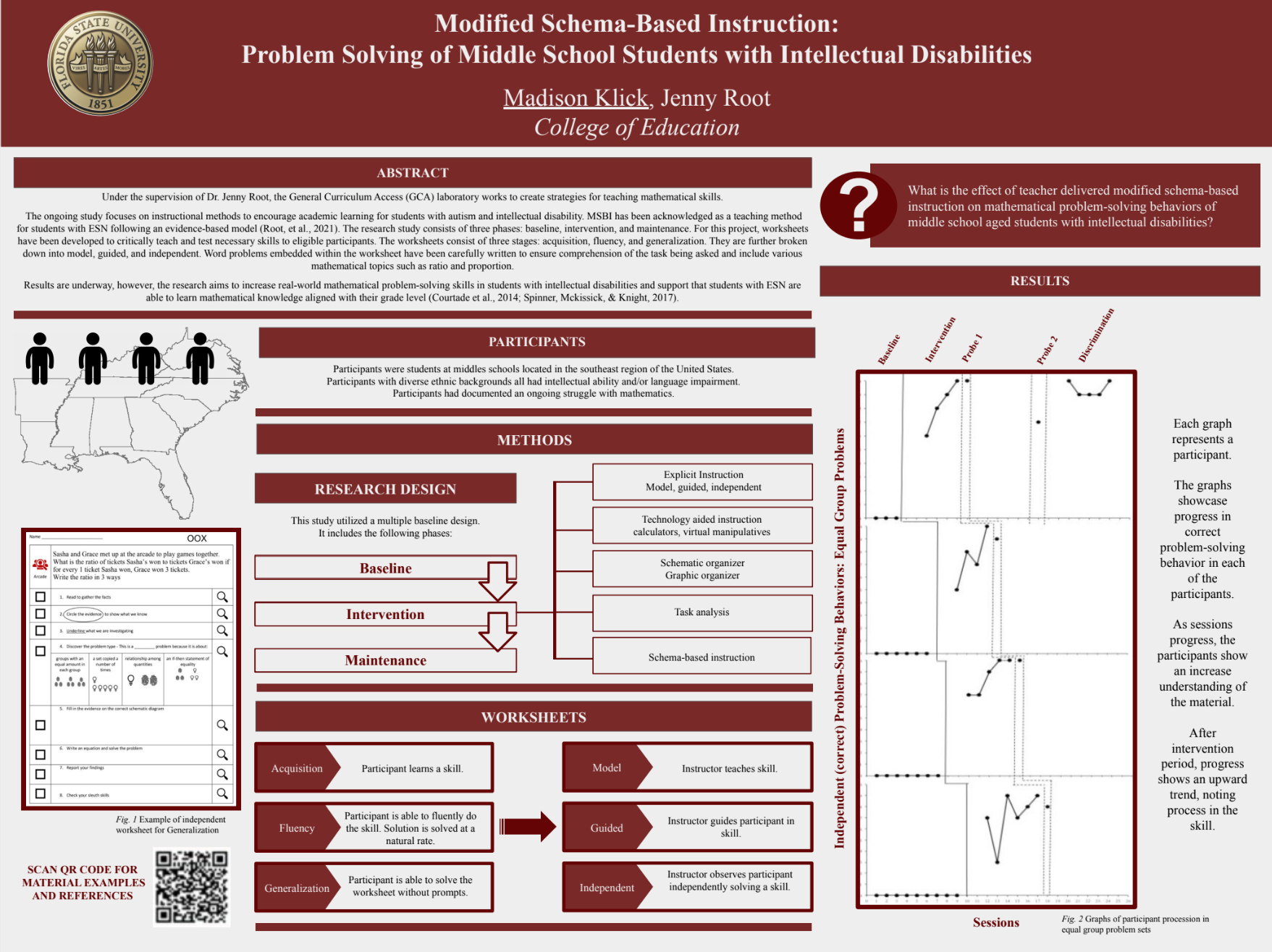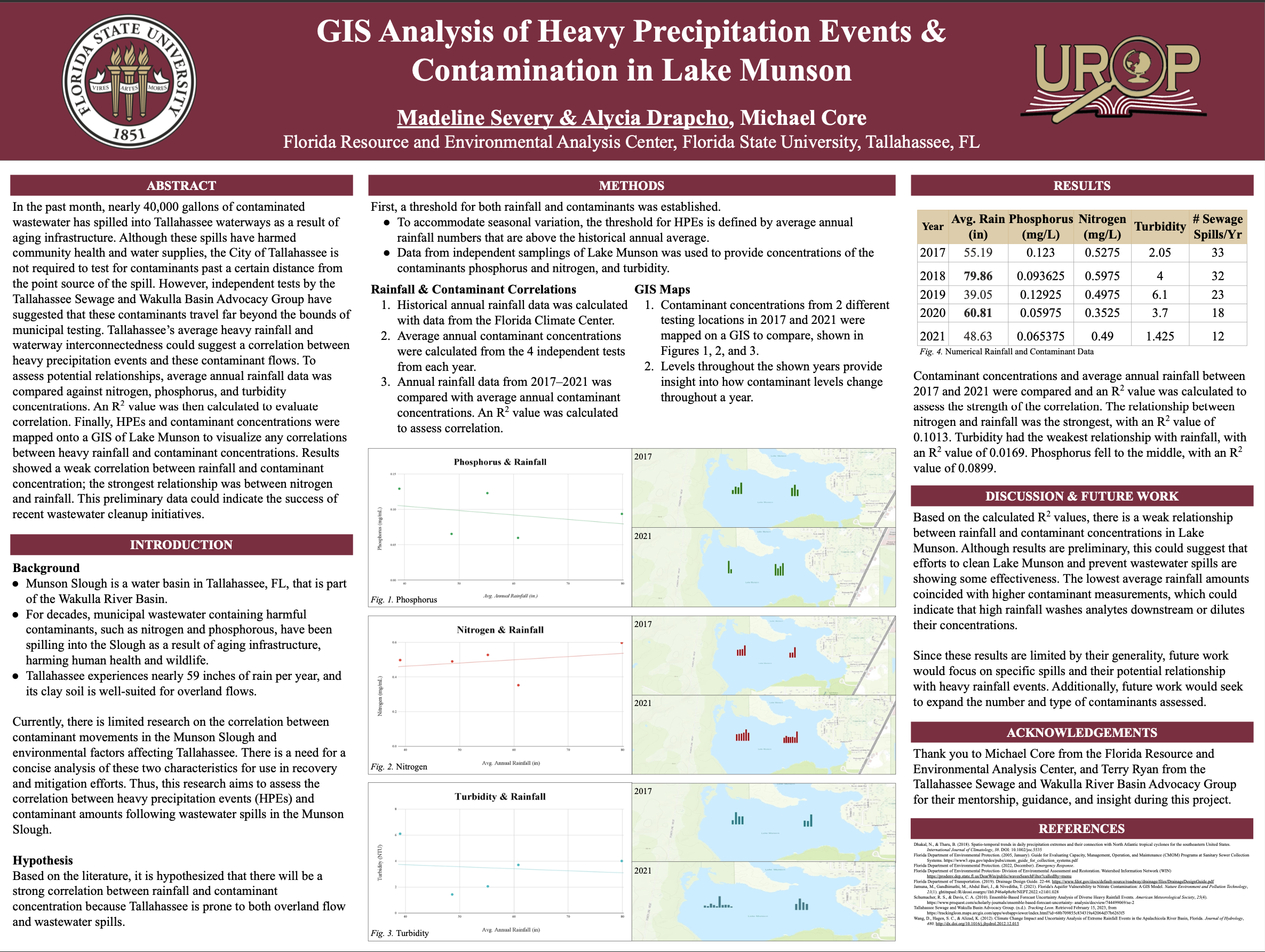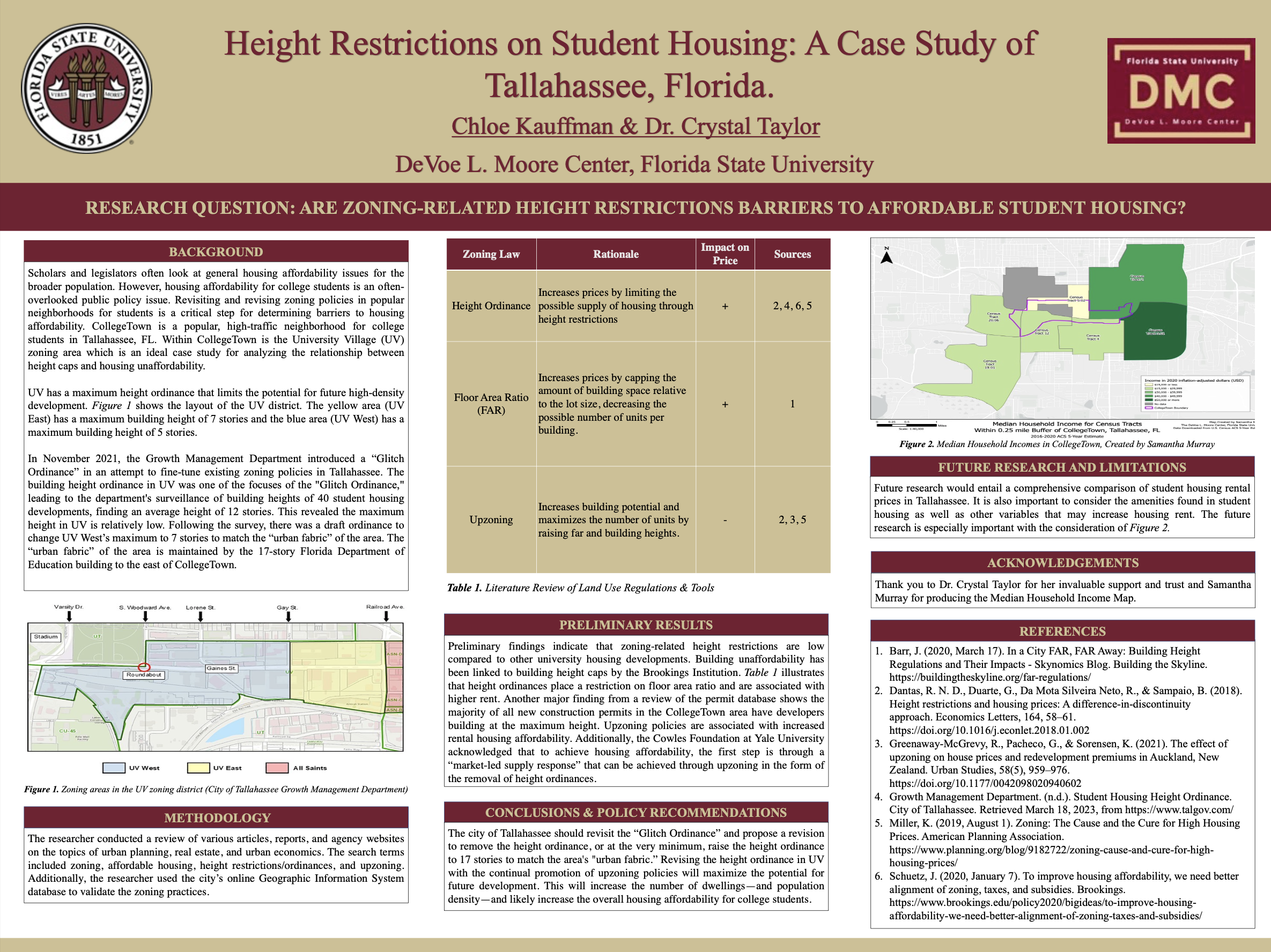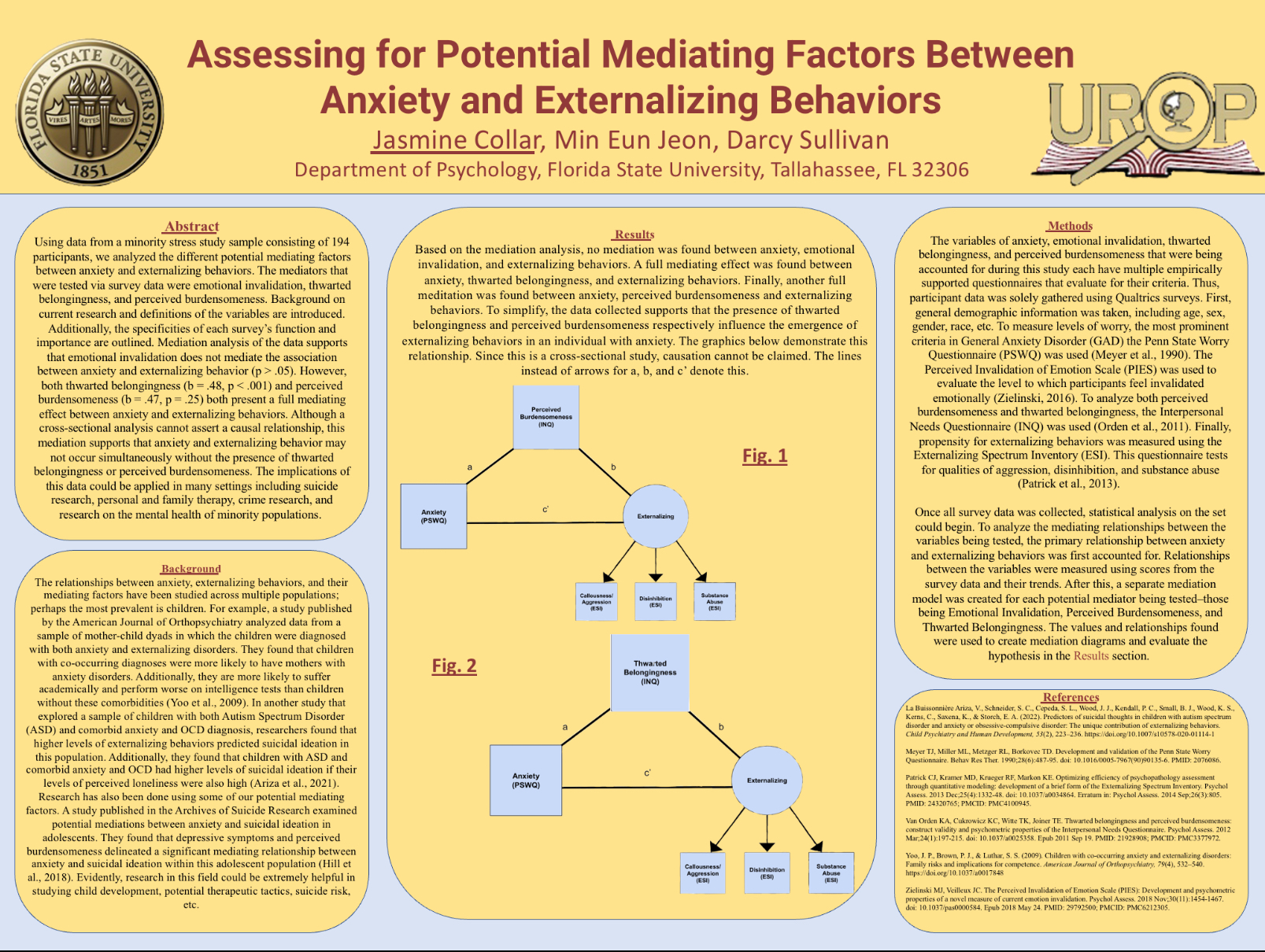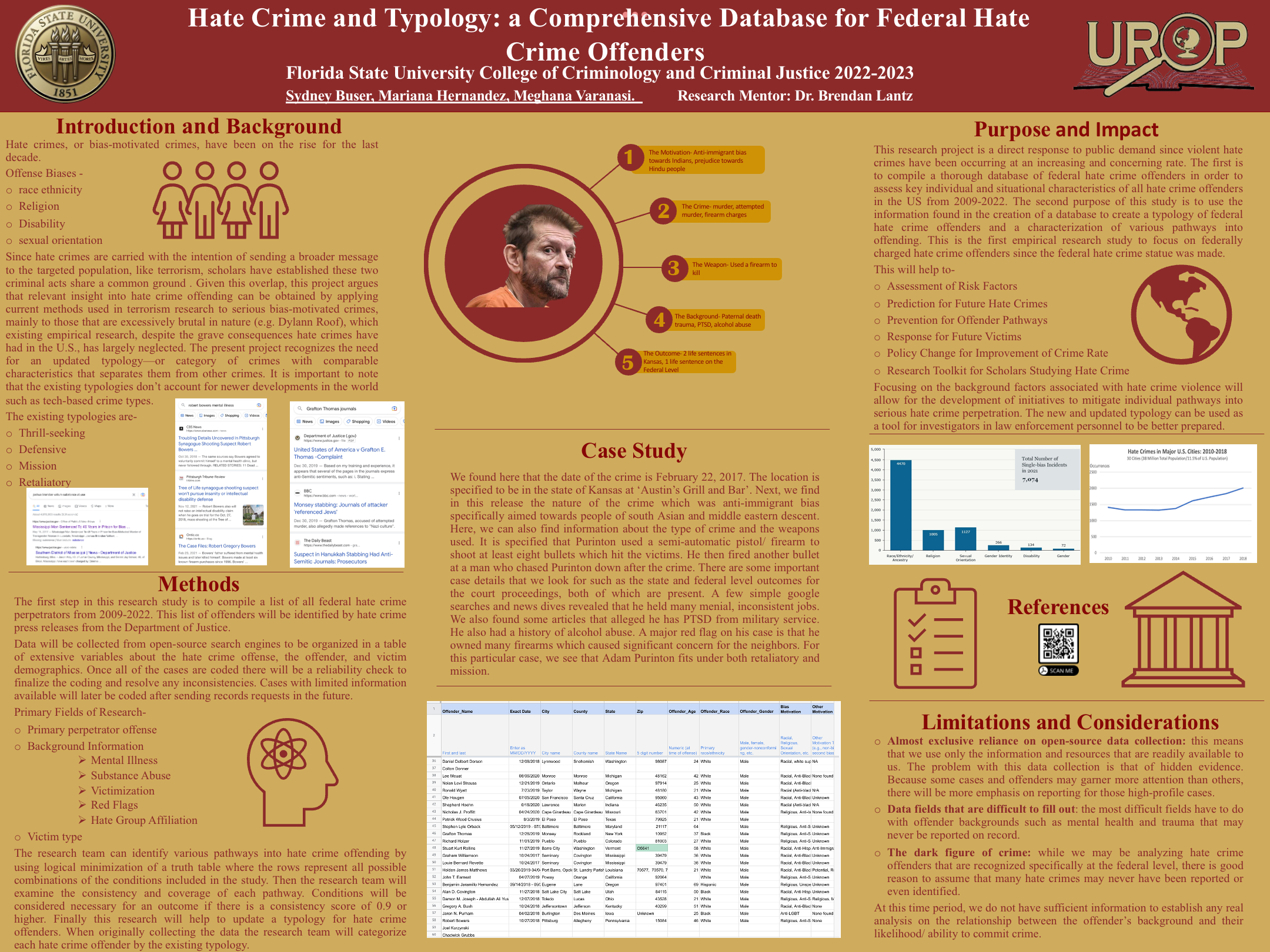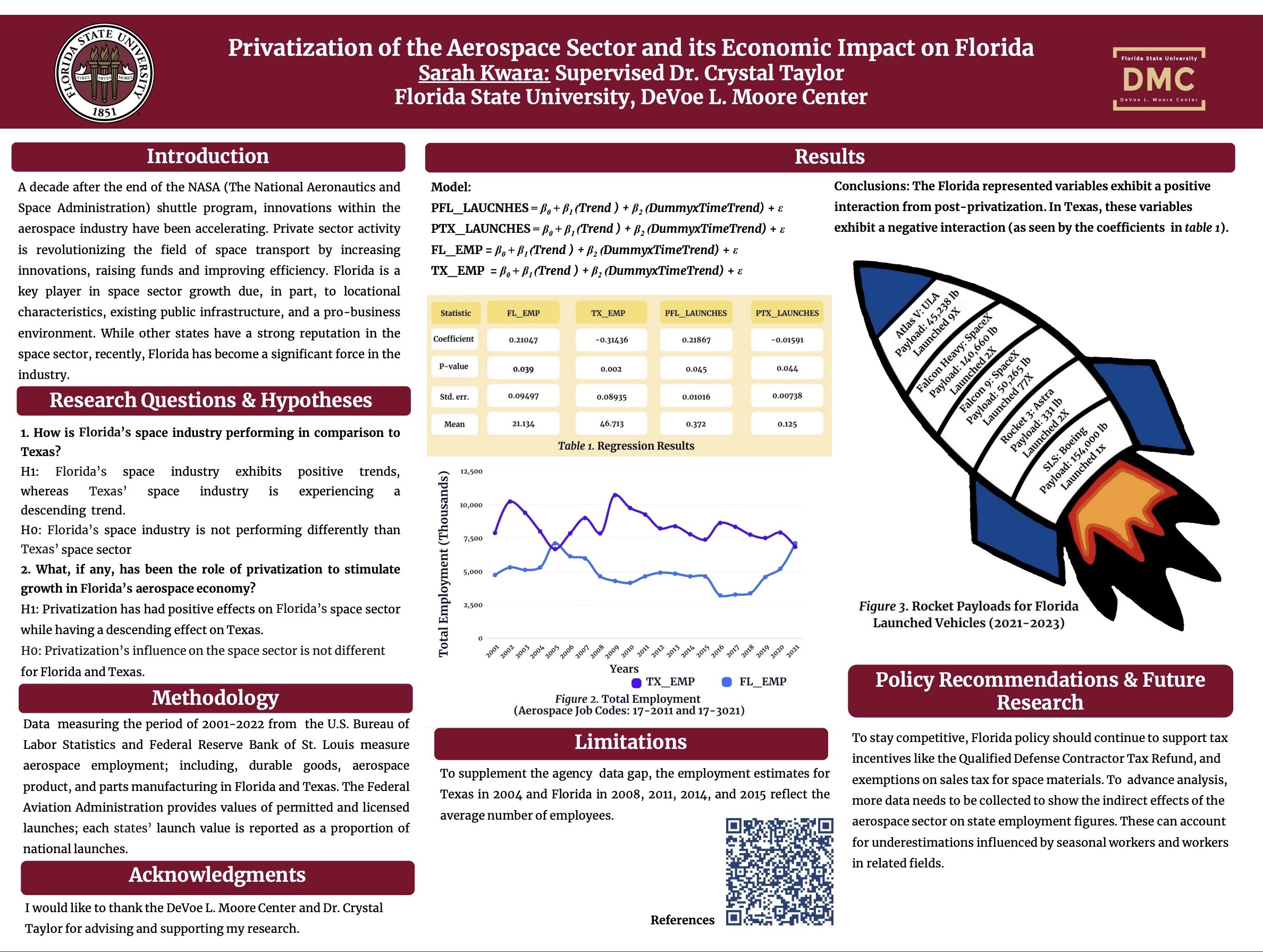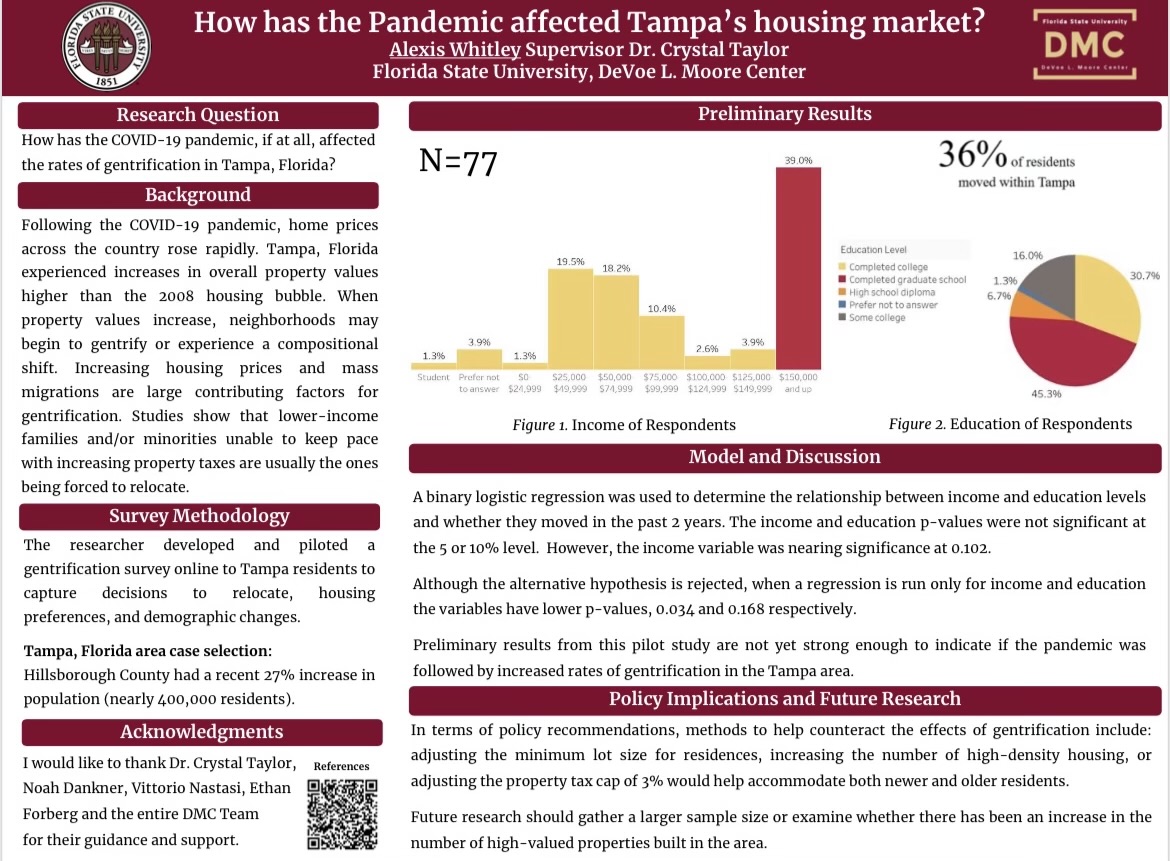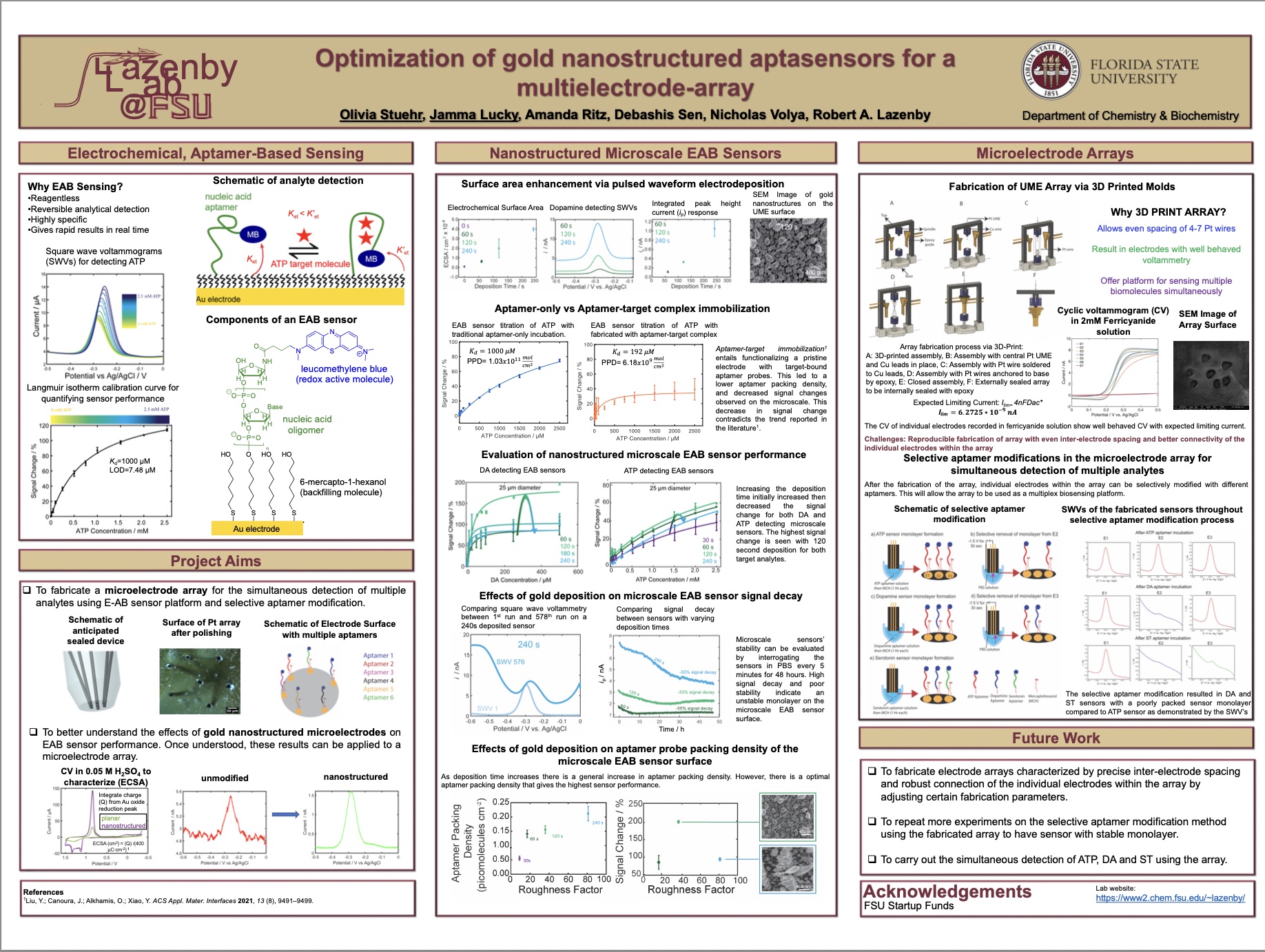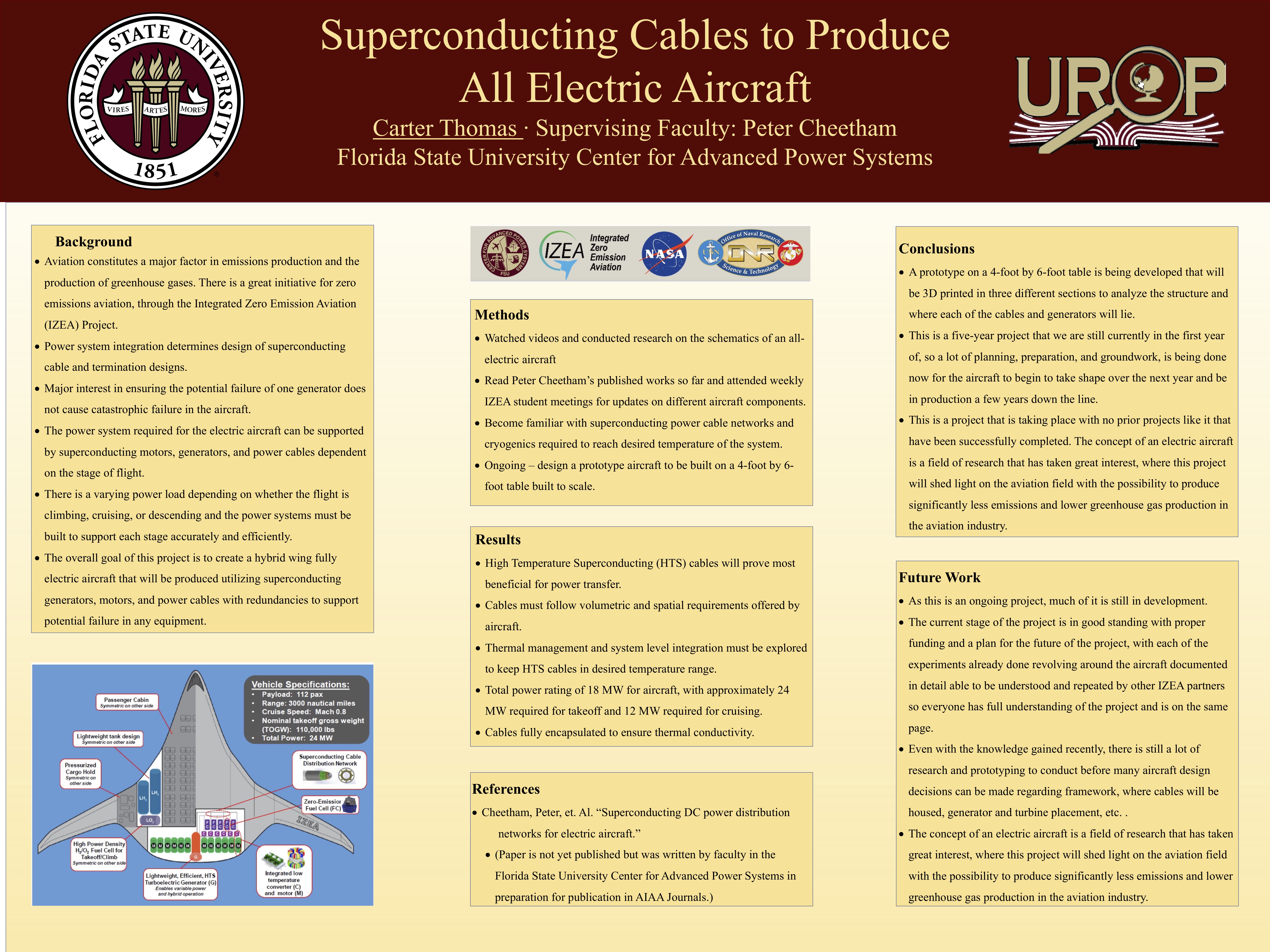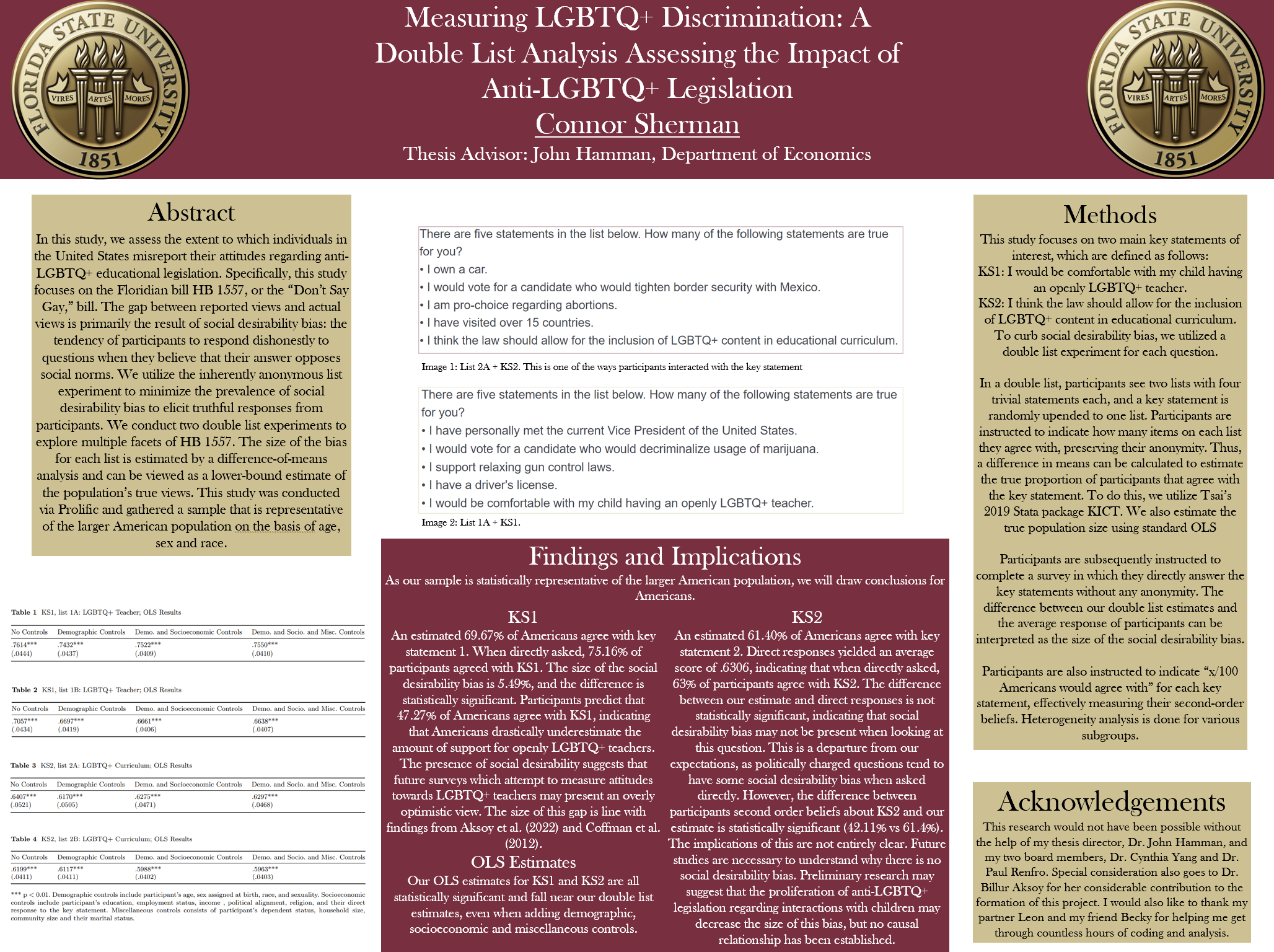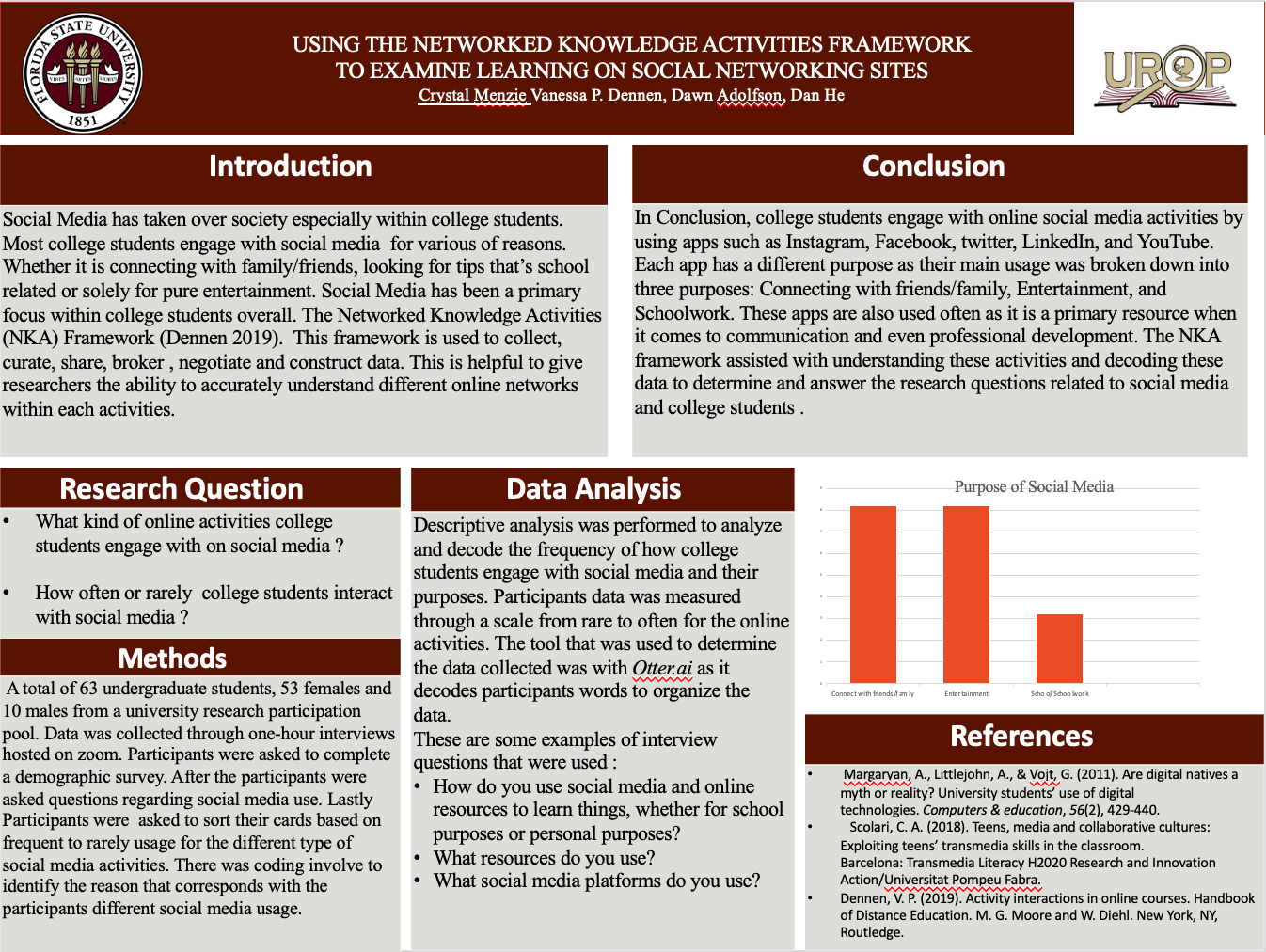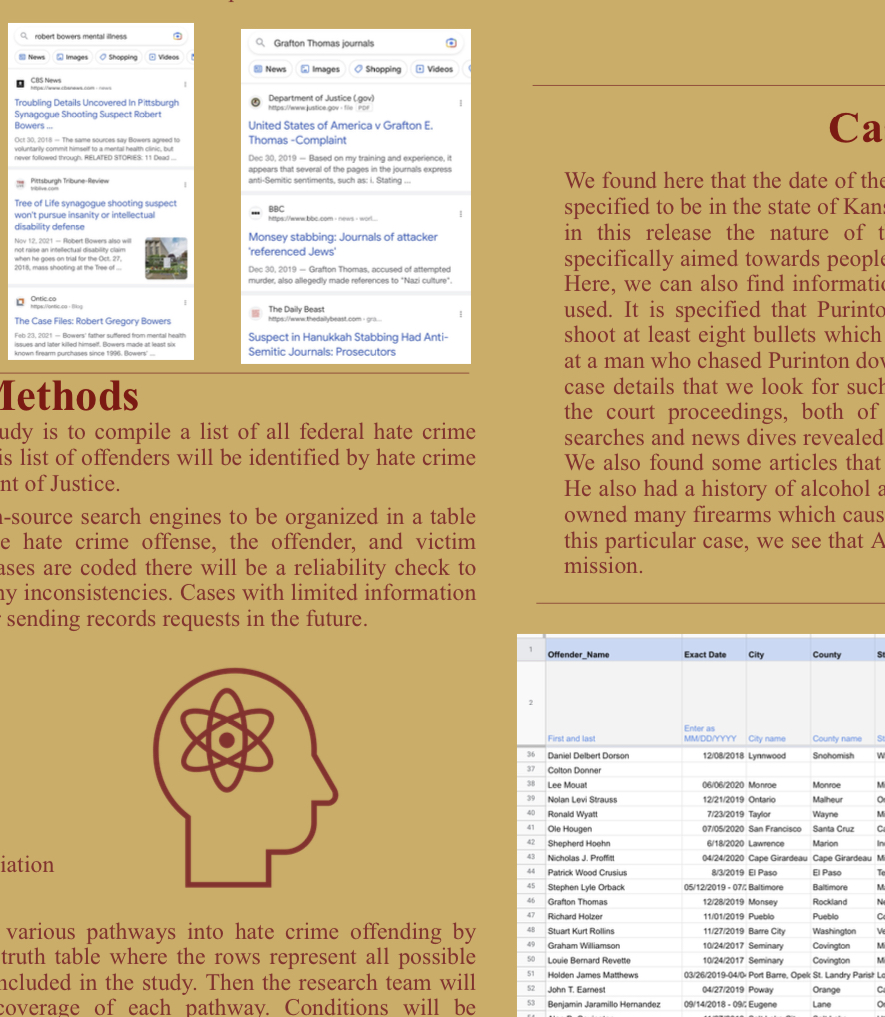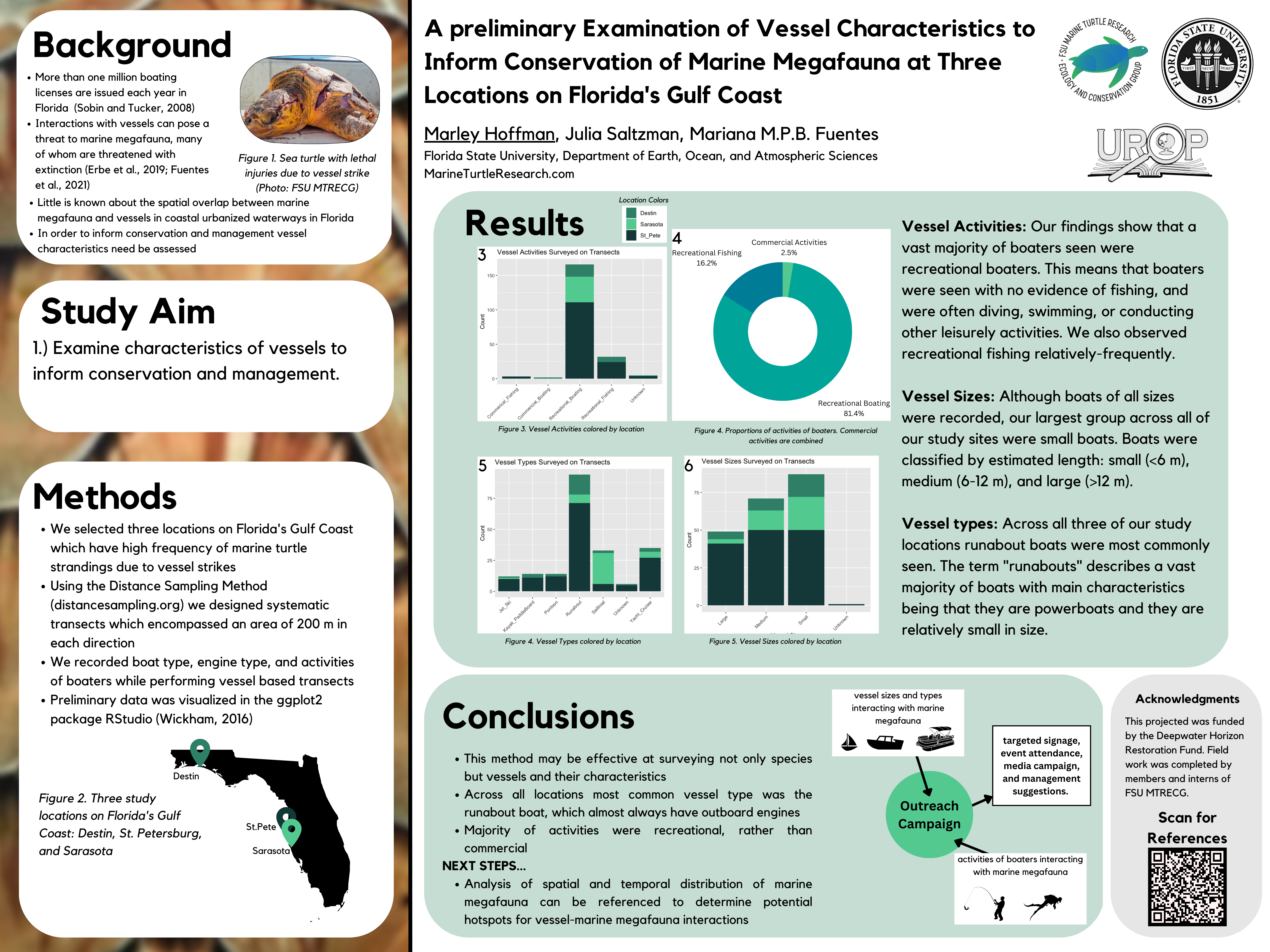Research Symposium
23rd annual Undergraduate Research Symposium, April 6, 2023
Flora Domitrovic Poster Session 3: 2:45 pm - 3:45 pm/ Poster #252

BIO
Hello, I'm a freshman from Jacksonville, Florida. I'm studying History with a minor in Urban and Regional Planning, but after this project I'd also like to study and get more experience with Geographic Information Science. My goal is to one day work in the urban planning field.
Reactions to Dual Disasters in the Florida Panhandle
Authors: Flora Domitrovic, Dr. Georgianna StrodeStudent Major: History
Mentor: Dr. Georgianna Strode
Mentor's Department: Florida Resources and Environmental Analysis Center Mentor's College: Florida Resources and Environmental Analysis Center Co-Presenters: Gabriela De Jesus
Abstract
In 2021, the Florida panhandle faced two disasters: Hurricane Elsa and the COVID-19 pandemic. Each county has different ways of dealing with natural disasters and public health emergencies, weather they enforce evacuation, establish shelters, or provide resources. The way people react to disasters depends on their circumstances and what their county provides for them. This project uses surveys and 2020 Census data to find correlations between people's living circumstances and perceptions of COVID-19 and their reactions to Hurricane Elsa.
Keywords: GIS, Hurricane, Panhandle, Geography, Florida
23rd annual Undergraduate Research Symposium, April 6, 2023
Bryanna Major Poster Session 2: 1:30 pm - 2:30 pm/ Poster #344
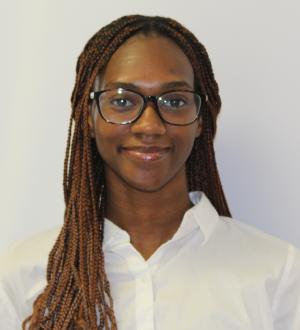
BIO
My name is Bryanna Major, and I am a second-year senior, pursuing a double major in Political Science and Economics. I was born in Haiti and raised in Miami, FL. I am the eldest sibling, and I have a dog who is a Bichon Frise and Shih-Tzu mix named Bear. I am currently interested in pursuing a career in law, so my research interests involves fields such as public policy, criminology, and general law proceedings. I am still deciding what type of law I want to practice, however, I hope to be in a position that helps others who are regularly affected by structural issues in the government or within certain systems. Alongside UROP, I am completing the Research Intensive Bachelor's Certificate, and I am an assistant Editor for the Owl under the Student Council for Undergraduate Research and Creativity.
Reparations and Intergroup Inequality
Authors: Bryanna Major, Taylor DarksStudent Major: Political Science & Economics
Mentor: Taylor Darks
Mentor's Department: Sociology Mentor's College: Socail Sciene Co-Presenters: Mia Saccentre
Abstract
By searching through articles and transcribing council meetings, the researchers evaluate the extent at which Evanston, Illinois is administering inclusive housing reparations as its funding primarily comes from cannabis sales. This project analyzes the marijuana industry and its efforts to increase diversity and how communities that were systematically impacted by marijuana laws are affected by Evanston housing reparation program. Through the use of extensive review, it is discovered that despite claims of increasing diversity and administering equitable housing reparations. Evanston is falling short on its promises. Diversity in the marijuana industry is at an all time low, and individuals who were previously charged with marijuana related activities are not getting any benefit from the reparation program. Results are not yet conclusive, however, literature review suggests that individuals who were discriminately affected by marijuana laws are not benefiting from the reparation program, despite it being funded by cannabis sales.
Keywords: Reparations, Equality, Public Policy, Law
23rd annual Undergraduate Research Symposium, April 6, 2023
Samantha Bikulcius Poster Session 4: 4:00 pm - 5:00 pm/ Poster #366
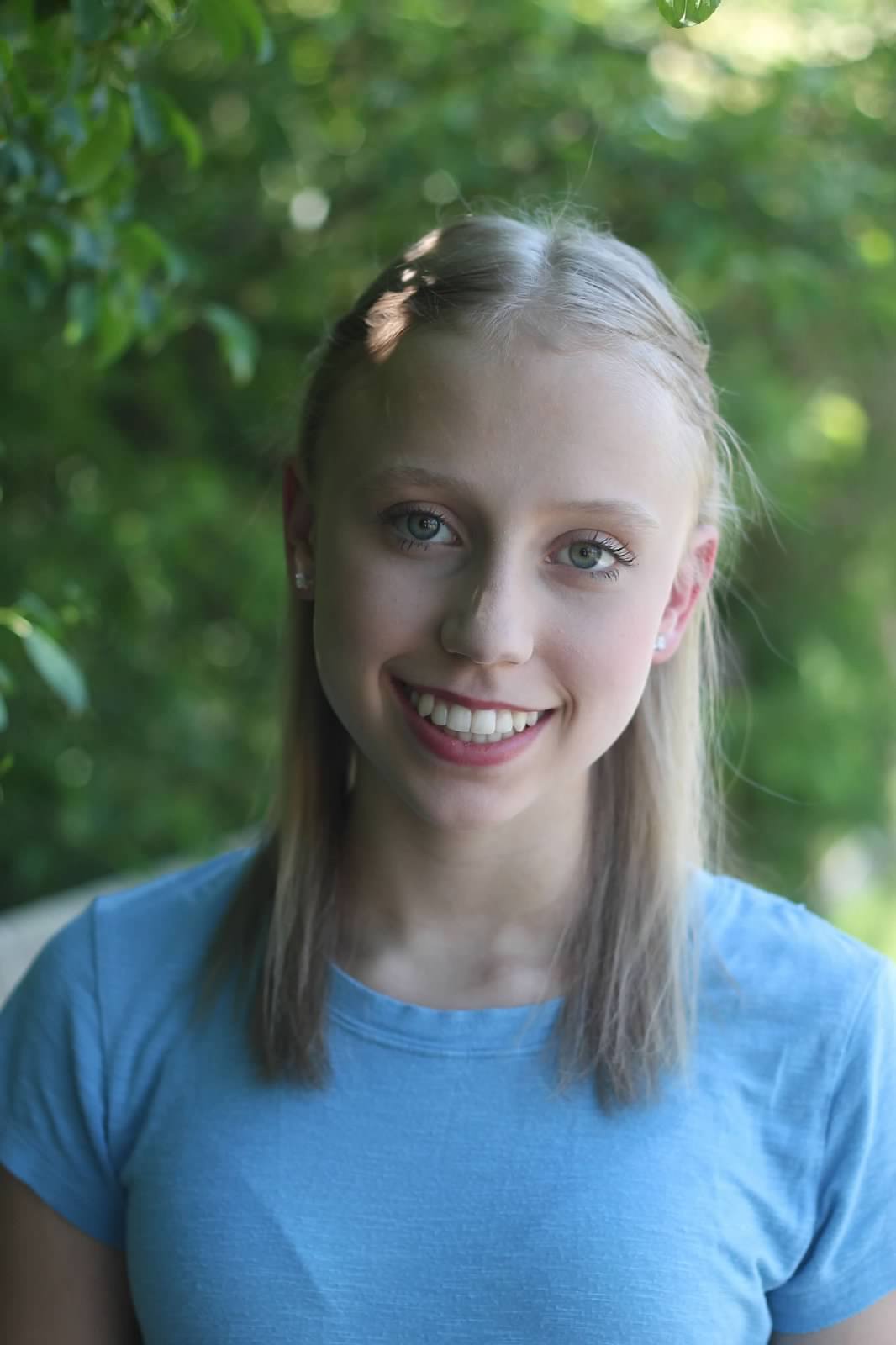
BIO
My name is Samantha and I am so excited to be presenting at my first research symposium! I spent my whole first year at FSU studying abroad and I dove right into research as soon as I arrived at main campus this year. I was so drawn to this project because I want to help listeners to better understand speech disorders and make social interaction easier for those with speech disorders.
Listening Effort in Dysarthria
Authors: Samantha Bikulcius , Micah HirschStudent Major: Communication Science and Disorders secondary major in Theatre Studies
Mentor: Micah Hirsch
Mentor's Department: Communication Science and Disorders Mentor's College: Communication and Information Co-Presenters:
Abstract
Dysarthria is a type of motor speech disorder that impacts the muscles used for speech production, often resulting in changes to a person’s speech and voice quality. This, in turn, can make it difficult for communication partners to understand dysarthric speech. The current study will investigate the role of listening effort in the perception of dysarthric speech using pupil dilation and self reported effort ratings. During the speech perception task, participants will be seated in front of a computer equipped with an eye tracking camera and listen to semantically anomalous phrases spoken by a speaker with dysarthria or a healthy control speaker. While listening to the phrase their pupil dilation will be tracked by the eye-tracking camera. After hearing the phrase, they will be instructed to repeat back what they heard and provide a rating of their listening effort on a 7-point Likert scale. Participants will complete a total of 80 trials, 40 from the speaker with dysarthria and 40 from the healthy control speaker. Then, participants will complete selected assessments from the NIH Toolbox Cognitive Battery. Data collection for the study is currently ongoing. However, study hypotheses and future plans will be discussed.
Keywords: Listening effort, dysarthria, cognitive effort
23rd annual Undergraduate Research Symposium, April 6, 2023
Kenneth Shannon Poster Session 3: 2:45 pm - 3:45 pm/ Poster #259
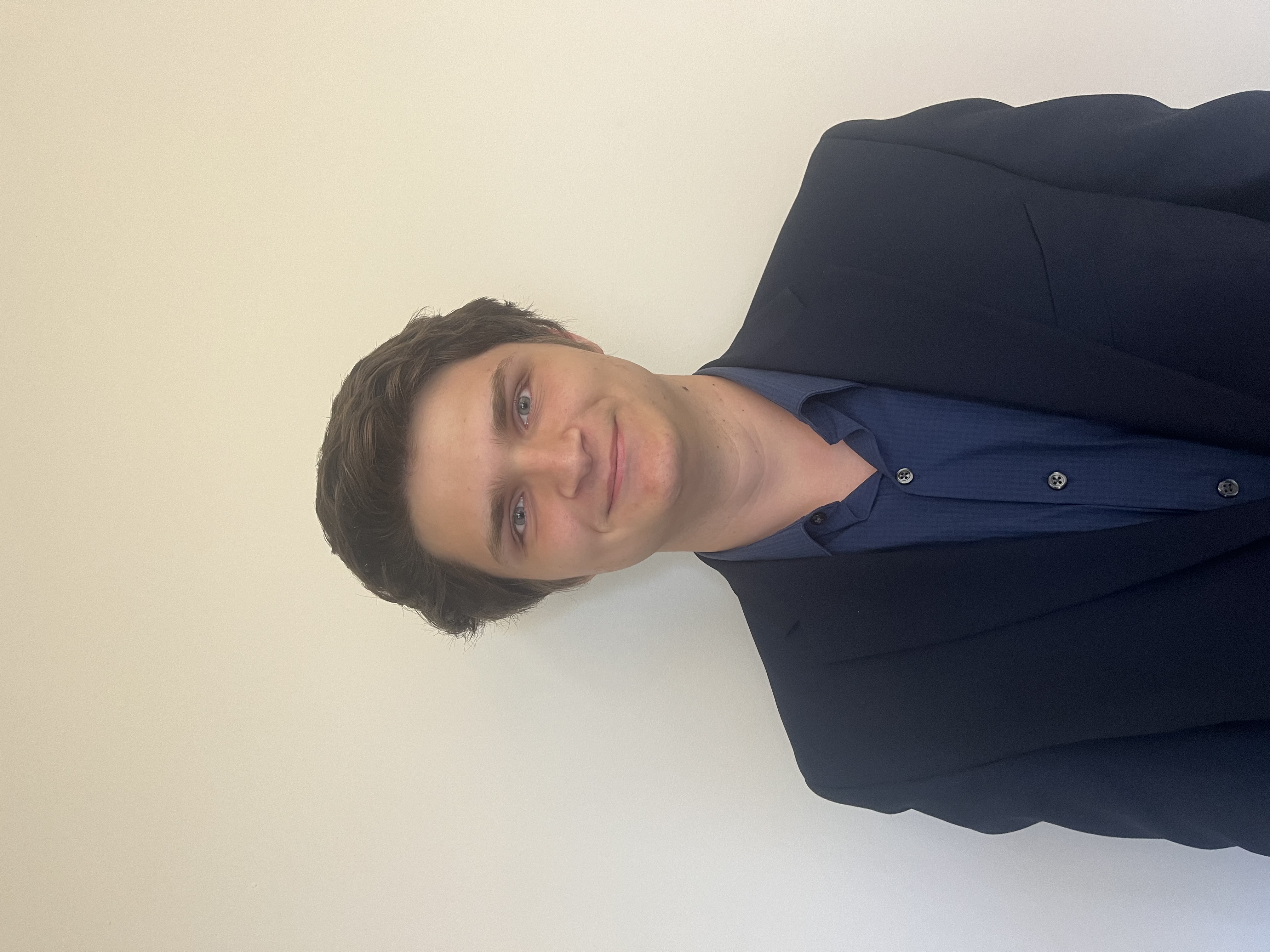
BIO
My Career Goals at the current time are to Become a Data Scientist or pursue a Graduate Degree in Economics.
A Normative Analysis of the Externalities of Gifts Given to Universities
Authors: Kenneth Shannon, Dr. Christie HandStudent Major: Economics/Applied Mathematics
Mentor: Dr. Christie Hand
Mentor's Department: Collage of Entrepreneurship Mentor's College: University of Florida Co-Presenters:
Abstract
This is a meta-analysis of gifts to universities and an analysis of their externalities to the university and taxpayer. The primary point of this research is to understand how and when gifts to universities are good for the betterment of the education of those there and or the benefit of research for mankind. While additionally, looking at how a good-hearted gift can result in negative productivity or inefficient use of university resources. The results of this research will not be finalized however, it has initially shown that completely monetary gifts with little to no restrictions and requirements or physical gifts with similarly limited requirements are purely beneficial or close to, as at worse the university will discard the physical gift and will absolutely make use of a financial gift. However, gifts with strict requirements on how and when to be used can be detrimental unless it is a resource otherwise unavailable to the university or institution.
Keywords: Social Sciences, Economics, Entrepreneurship
23rd annual Undergraduate Research Symposium, April 6, 2023
Grant Stacey Poster Session 4: 4:00 pm - 5:00 pm/ Poster #260
BIO
Grant Stacey is a researcher originally from Port Charlotte, Florida, interested in the interactions between authoritative governmental institutions and individual civil liberties, especially that of free practice of religion. They are currently pursuing degrees from FSU in Political Science and Religion, and hope to continue to conduct research around these topics and their connections to local communities.
The FBI, COINTELPRO, and Tallahassee's New Left
Authors: Grant Stacey, Micheal McVicarStudent Major: Political Science, Religion
Mentor: Micheal McVicar
Mentor's Department: Dept. of Religion Mentor's College: College of Arts and Sciences Co-Presenters: Marco Lofaso
Abstract
As Cold War tensions tightened alongside a burgeoning, left-wing, student movement, domestic FBI opposition oriented itself against the New Left- a broad, young, abstraction of Marxist ideology opposed to Soviet-style governance, rooting itself on American collegiate campuses. The FBI's COINTELPRO (Counterintelligence Program) targeted New Left activity on university campuses throughout the nation. In order to properly detail the role that COINTELPRO had in subverting New Left activities in and around the Tallahassee area researchers examined internal FBI documents and memorandums, university archives, and underground newspapers. Using a timeline of events, researchers captured the escalating social and political controversies in Tallahassee and its respective universities, Florida State University (FSU) and Flordia A&M University (FAMU). Using these resources, researchers were able to establish a clear intention by the FBI to infiltrate and suppress New Left activities in Northern Florida - utilizing methods of espionage and federal oversight. Research is currently ongoing to precisely detail and capture the full extent of FBI intervention, regarding COINTELPRO, in the Tallahassee area.
Keywords: COINTELPRO, Surveilance, Religion, Government, FBI
23rd annual Undergraduate Research Symposium, April 6, 2023
Emma Reed Poster Session 3: 2:45 pm - 3:45 pm/ Poster #105
BIO
Emma Reed is a senior majoring in History and minoring in Political Science. She specializes in early-modern European history and much of her research surrounds the interactions between social politics and the regency in England and its allies. Following graduation, she will be attaining her master's degree in Art History at Florida State University. She aims to work as a museum curator and hopes to get her Ph.D in Early Modern European Studies.
Early-Modern Forensic Pathology in French and English Legal Medicine
Authors: Emma Reed, Cathy McCliveStudent Major: History
Mentor: Cathy McClive
Mentor's Department: Department of History Mentor's College: College of Arts and Sciences Co-Presenters:
Abstract
Anatomical dissections became a foundational cornerstone in early forensic pathology and were key in the medico-legal world. Ancient medical philosophers, doctors, and embalmers in Egypt, Babylon, and Greece showed the early interest in the inner functions of the human body and archeological evidence illustrate an in-depth knowledge of human anatomy.
In Western Europe, dissections were performed on nobility as early as the 12th century, and rose in reliance in the 16th century, where they were used to determine if a nobleman had been assassinated based on the physiological damage from the poison. Anatomical dissections and forensic pathology in the eighteenth century had great advancements that had not been seen in the previous centuries of its practice and implementation and became a key foundation stone upon which forensic science would rest.
Despite dissections existing prior to the eighteenth century, early modern anatomical dissection studies emerged in greater numbers in the late eighteenth century. Interest in the precursor to modern autopsy grew exponentially, along with the interest in morbid anatomy and its close ties to anatomical dissection. France became one of the preeminent countries to study anatomy and morbid anatomy following the French Revolution. Simultaneously, England would become an equally prestigious country due to Hunterian schools and their rise in accessibility in the late eighteenth century. Two case studies from France and England will be compared against each other in order to show the difference in how early modern anatomists interpreted forensic evidence and how they presented their findings in legal proceedings.
Keywords: Early Modern Europe, Forensic Pathology, Legal Medicine, England, France
23rd annual Undergraduate Research Symposium, April 6, 2023
Madison Klick Poster Session 4: 4:00 pm - 5:00 pm/ Poster #271

BIO
Madison is a sophomore at Florida State University seeking a dual degree in Biological Sciences and Criminal Justice/Criminology with minors in Chemistry and Psychology. With this educational background, she wishes to spend her workforce years dressed in laboratory gear as a Forensic Biologist. In her time at FSU, Madison has devoted 2 years to research with the GCA lab. With UROP in freshman year being her introduction to the research community, Madison hopes to continue the path of research. In upcoming semesters, Madison is interested in research in the fields of biology, chemistry, and physics.
Modified Schema-Based Instruction: Problem Solving of Middle School Students with Intellectual Disabilities
Authors: Madison Klick, Jenny RootStudent Major: Biological Science, Criminology
Mentor: Jenny Root
Mentor's Department: Department of Teacher Education Mentor's College: College of Education Co-Presenters:
Abstract
Under the supervision of Dr. Jenny Root, The General Curriculum Access (GCA) laboratory works to create strategies for teaching mathematical skills.
The ongoing study focuses on instructional methods to encourage academic learning for students with autism and intellectual disability. MSBI has been acknowledged as a teaching method for students with ESN following an evidence-based model (Root, et al., 2021). The research study consists of three phases: baseline, intervention, and maintenance. For this project, worksheets have been developed to critically teach and test necessary skills to eligible participants. The worksheets consist of three stages: acquisition, fluency, and generalization. They are further broken down into model, guided, and independent. Word problems embedded within the worksheet have been carefully written to ensure comprehension of the task being asked and include various mathematical topics such as ratio and proportion.
Results are underway, however, the research aims to increase real-world mathematical problem-solving skills and students with intellectual disabilities and support that students with ESN are able to learn mathematical knowledge aligned with their grade level (Courtade et al., 2014; Spinner, Mckissick, & Knight, 2017).
Keywords: Instruction, disability, mathematics
23rd annual Undergraduate Research Symposium, April 6, 2023
Madeline Severy Poster Session 4: 4:00 pm - 5:00 pm/ Poster #176
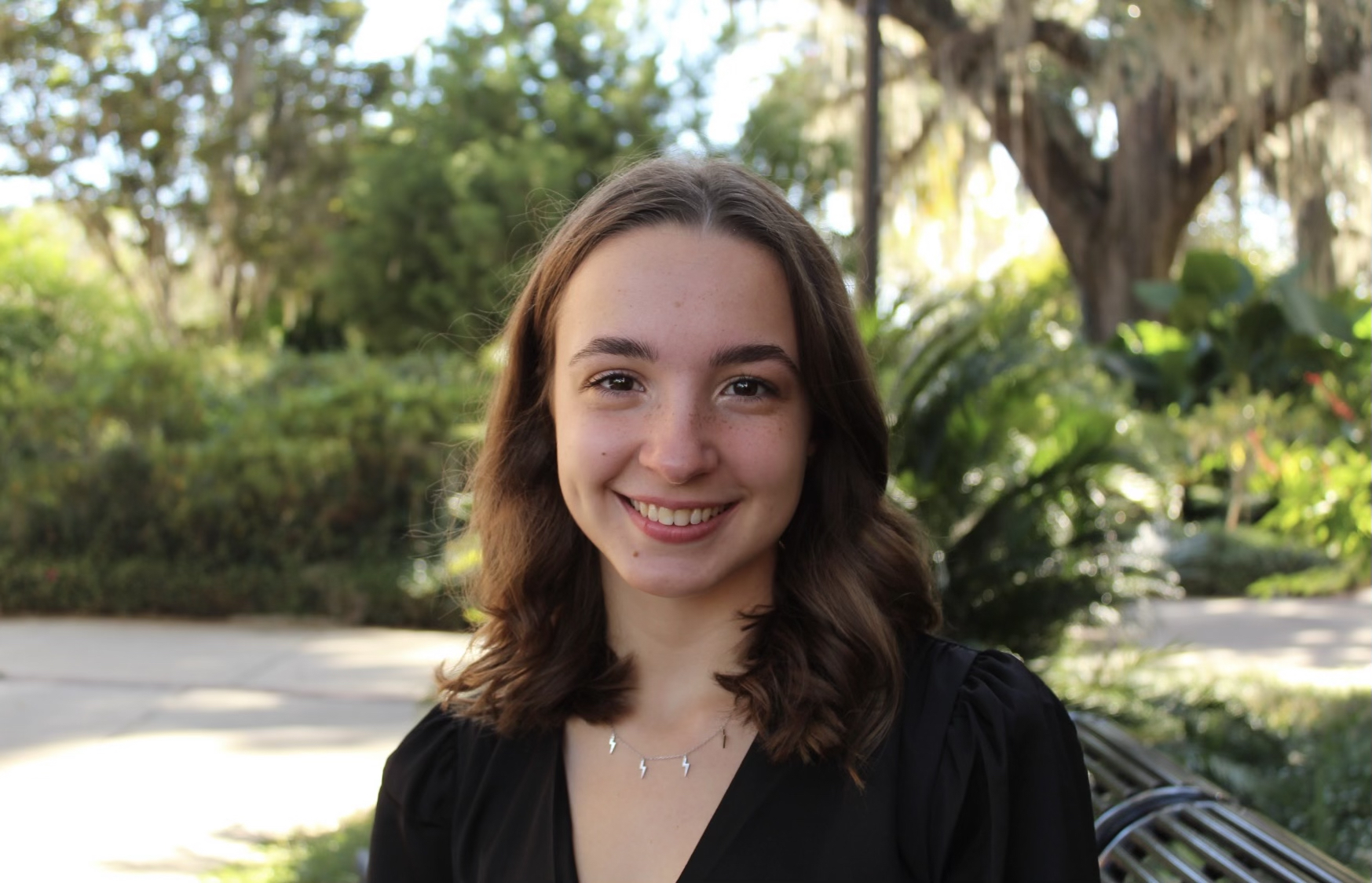
BIO
My name is Maddie and I'm a first-year student double majoring in International Affairs and Environmental Science at Florida State University looking to pursue a career in environmental policy. I am passionate about research and community engagement as ways of creating tangible change in my community. I hope to utilize my perspective as a student and global citizen to lead, uplift, and inspire, and research is the perfect outlet for that.
GIS Analysis of Heavy Precipitation Events and Contaminants in Lake Munson, FL
Authors: Madeline Severy, Michael CoreStudent Major: International Affairs & Environmental Science
Mentor: Michael Core
Mentor's Department: Florida Resource and Environmental Analysis Center Mentor's College: n/a (independent group) Co-Presenters: Alycia Drapcho
Abstract
In the past month, nearly 40,000 gallons of contaminated wastewater has spilled into Tallahassee waterways as a result of aging infrastructure. Although these spills have harmed community health and water supplies, the City of Tallahassee is not required to test for contaminants past a certain distance from the point source of the spill. However, independent tests by the Tallahassee Sewage and Wakulla Basin Advocacy Group have suggested that these contaminants travel far beyond the bounds of municipal testing. Tallahassee’s average heavy rainfall and waterway interconnectedness could suggest a correlation between heavy precipitation events and these contaminant flows. First, the threshold for a heavy precipitation event (HPE) was defined using rainfall data for the Tallahassee area. Historical rainfall data was then compared with said threshold to indicate HPEs. Finally, HPEs and contaminant concentrations were mapped onto a GIS map of the Tallahassee area to assess any correlations between heavy rainfall and contaminant flows in the Munson Slough. Results are still preliminary and data is still being processed, but future work to correlate contaminant movement with other natural factors could help shed further light on how pervasive the issue of wastewater spills are in Tallahassee.
Keywords: wastewater spill, Tallahassee, GIS
23rd annual Undergraduate Research Symposium, April 6, 2023
Chloe Kauffman Poster Session 4: 4:00 pm - 5:00 pm/ Poster #95
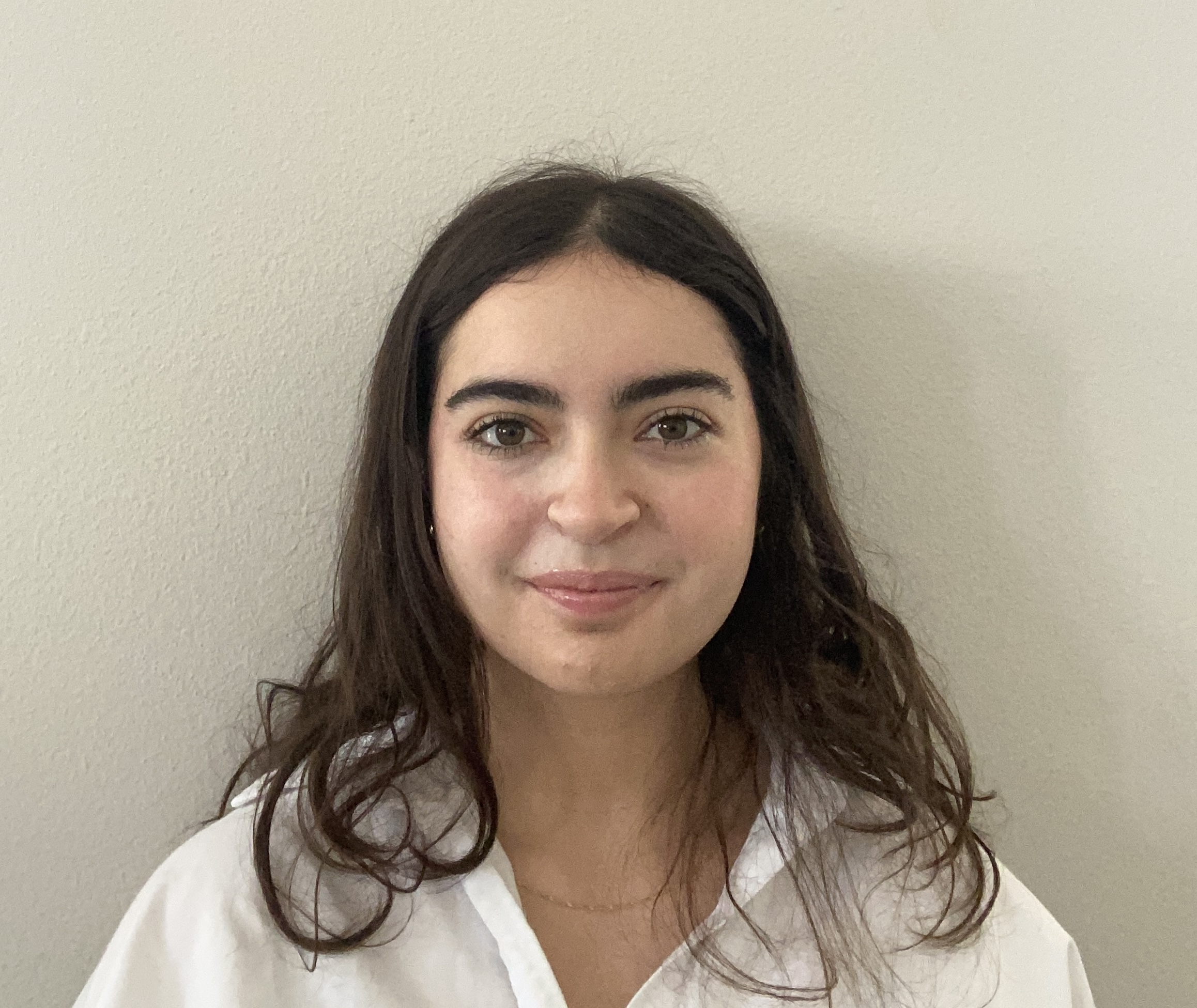
BIO
Chloe Kauffman is a 3rd-year student at Florida State University (FSU) and is expected to graduate in Spring 2023 with a Bachelor of Science in Economics. After graduating, she will pursue a Master of Science in Applied Economics beginning in Fall 2023. At FSU, she serves as the academic chair for College of Social Sciences and Public Policy Student Leadership Council and writes for FSView & Florida Flambeau. Chloe started her career in policy in the Summer of 2022 when she began working as a Policy Research Intern for the James Madison Institute. She interns with the DeVoe L. Moore Center, where she has been researching the effect of height ordinances on housing prices. In the Spring of 2023, Chloe began a new internship with the Florida Senate Committee on Finance and Tax for the 2023 Florida Legislative Session. Chloe is very excited to continue her academic and professional pursuits and plans to pursue a career in economic forecasting.
Height Restrictions on Student Housing: A Case Study of Tallahassee, Florida.
Authors: Chloe Kauffman, Dr. Crystal TaylorStudent Major: Economics
Mentor: Dr. Crystal Taylor
Mentor's Department: Economics Mentor's College: College of Social Sciences and Public Policy Co-Presenters:
Abstract
Housing affordability and insecurity for college students is a grave issue that has often been ignored. Investigating zoning policies in popular neighborhoods for students may help determine how to effectively increase housing affordability. The University Village zoning district, commonly referred to as CollegeTown, is a popular, high-traffic neighborhood for college students at Florida State University and is an ideal case study for analyzing the relationship between building height restrictions and housing unaffordability. The research asks, “Are zoning-related height restrictions barriers to affordable housing? The researcher will determine the effectiveness of the height ordinance by reviewing planning literature, analyzing publicly accessible local building permits, and conducting an observational audit of the district. Preliminary findings indicate that zoning-related height restrictions are uniquely low. From the City’s survey of 40 student housing developments, the average height of housing complexes is 12 stories well below the current height caps. In terms of public policy recommendations, increasing the height maximum will increase the housing supply and promote housing affordability for Tallahassee students. Revising the zoning regulations up to 17 stories would maintain the “urban fabric” of the area, which is constrained by the Florida Department of Education building and the Doak Campbell Stadium, while also prioritizing housing affordability for students.
Keywords: CollegeTown, Economics, Urban Planning, Tallahassee, Land-Use
23rd annual Undergraduate Research Symposium, April 6, 2023
Jasmine Collar Poster Session 2: 1:30 pm - 2:30 pm/ Poster #157
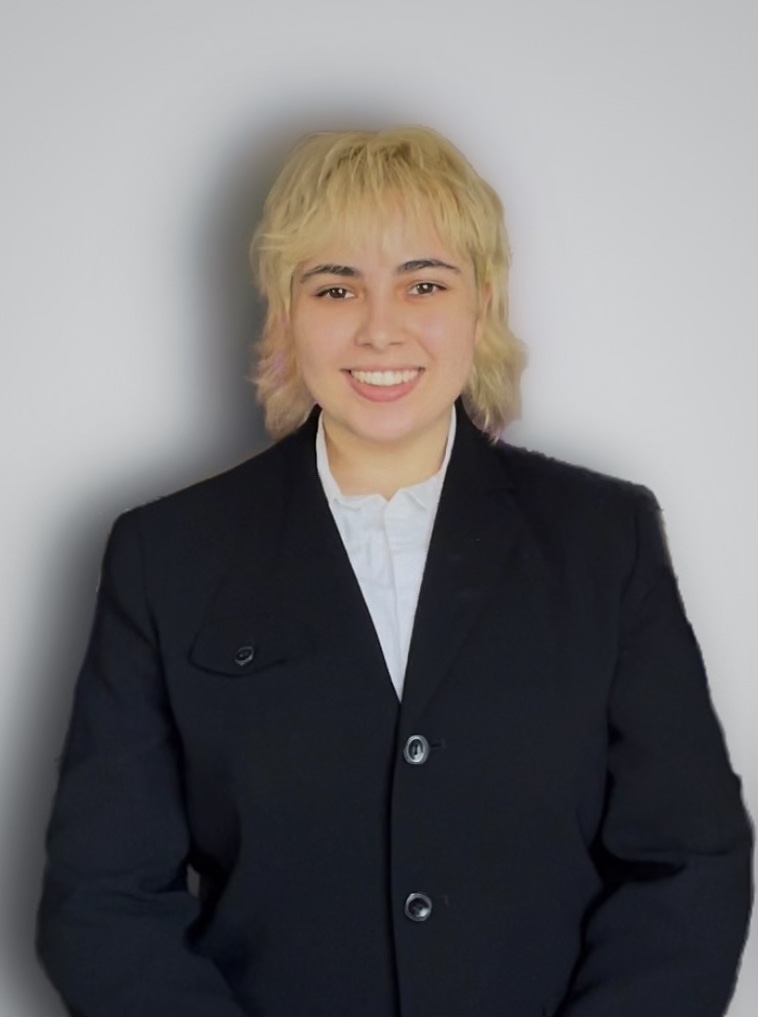
BIO
Jasmine Collar is a second year psychology major at Florida State University. Jasmine was born and raised in Miami, Florida and is proud of her Cuban heritage. On campus, Jasmine is heavily involved in what matters to her. She is part of co-ed service fraternity, Alpha Phi Omega, and has served as chair of multiple service subcommittees. She is also involved in research and serves as an assistant in the Joiner lab in the department of Psychology. During free time, Jasmine enjoys singing and playing guitar and has performed at venues across Tallahassee and Miami. Jasmine hopes to continue a career in research and psychology, aiming to work in the prison system and developing therapeutic tactics to combat inmate recidivism.
Assessing for Potential Mediating Factors Between Anxiety and Externalizing Behaviors
Authors: Jasmine Collar, Min Eun JeonStudent Major: Psychology
Mentor: Min Eun Jeon
Mentor's Department: Psychology Mentor's College: Arts & Sciences Co-Presenters:
Abstract
Using data from a minority stress study sample consisting of 194 participants, we analyzed the different potential mediating factors between anxiety and externalizing behaviors. The mediators that were tested via survey data were emotional invalidation, thwarted belongingness, and perceived burdensomeness. Background on current research and definitions of the variables are introduced. Additionally, the specificities of each survey’s function and importance are outlined. Mediation analysis of the data supports that emotional invalidation does not mediate the association between anxiety and externalizing behavior (p > .05). However, both thwarted belongingness (b = .48, p < .001) and perceived burdensomeness (b = .47, p = .25) both present a full mediating effect between anxiety and externalizing behaviors. Although a cross-sectional analysis cannot assert a causal relationship, this mediation supports that anxiety and externalizing behavior may not occur simultaneously without the presence of thwarted belongingness or perceived burdensomeness. The implications of this data could be applied in many settings including suicide research, personal and family therapy, crime research, and research on the mental health of minority populations.
Keywords: Anxiety, Externalizing, Aggression, Substance Abuse
23rd annual Undergraduate Research Symposium, April 6, 2023
Sydney Buser Poster Session 1: 11:00 am - 12:00 pm/ Poster #148
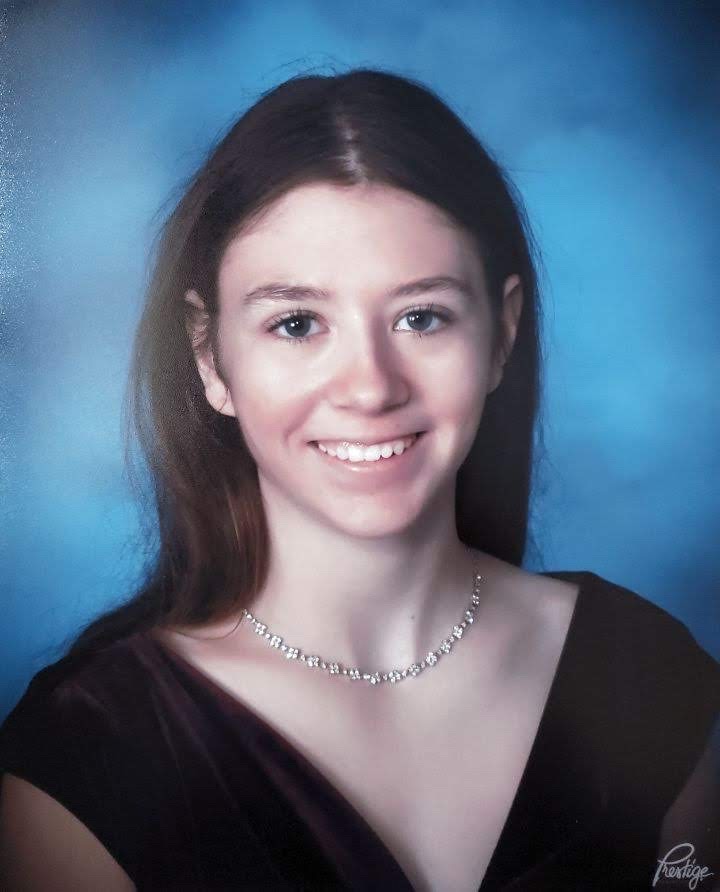
BIO
My name is Sydney Buser and I am a second year student at Florida State University. I am a criminology major with a Spanish minor but hope to complete a dual degree with my second major being psychology. I aspire to work for law enforcement at the federal level. I am interested in researching anything within my two fields of research. This year with the undergraduate research program I worked under Dr. Lantz on a research project about federal hate crime offenders.
Hate Crime and Typology: a Comprehensive Database for Federal Hate Crime Offenders
Authors: Sydney Buser, Dr. Brendan LantzStudent Major: Criminology
Mentor: Dr. Brendan Lantz
Mentor's Department: Criminology and Criminal Justice Mentor's College: Florida State University College of Criminology and Criminal Justice Co-Presenters: Mariana Hernández, and Meghana Varanasi
Abstract
Hate crimes are prevalent in the US. They can be violent or non-violent, and they can be directed towards any demographic/ group of people. The research we conduct serves to create a comprehensive database of federal hate crime offenders. The purpose of this is to modernize the data- the last such database is extremely outdated and is no longer representative of current trends. I will discuss how the work will allow researchers from many different fields to draw conclusions such as cause/ effect trends with hate crime and mental illness. I will talk further on how the database will aid the criminal Justice system in targeted detection and prevention for hate crime. One of the main things I will discuss will be the research methodology. We are given a master list of federal hate crime offenders ranging all the way from the early 2000's to present years. As researchers, we have to choose offenders to code into the database. We have to use the internet and any/ all available sources to find out an array of information about the offender, their crime, the legal proceedings, and the victims. I will also talk about how our findings show that offenders often have previous histories of childhood victimizations or mental health illnesses. Because this is an ongoing project, any concrete conclusions have yet to be found.
Keywords: Hate Crime Database
23rd annual Undergraduate Research Symposium, April 6, 2023
Sarah Kwara Poster Session 4: 4:00 pm - 5:00 pm/ Poster #355
BIO
My name is Sarah Kwara and I am a senior from Gainesville Florida. My major is economics with a minor in Spanish. This year I have expanded my research interests and the recent industry expansion of the aerospace sector has become the focus of my work. Analyzing the private sector's influence on the aerospace industry has allowed me to give this topic a platform for economic analysis. With a specific focus on Florida, I hope these trends and interactions appear relevant and engaging.
Privatization of the Aerospace Sector and its Economic Impact on Florida
Authors: Sarah Kwara, Dr. Crystal TaylorStudent Major: Economics
Mentor: Dr. Crystal Taylor
Mentor's Department: DeVoe Moore Center Mentor's College: Social Science and Public Policy Co-Presenters:
Abstract
Between 2012 and 2019, scholars reported that the GDP for the space economy was tracking slightly higher than the overall United States Economy. Around this time, private sector dominance increased in the field following the end of the NASA shuttle program. Florida has been a key player in the space sector thus research asks, “How is Florida’s space industry performing in comparison to other states?” and “What, if any, has been the role of privatization to stimulate growth in Florida’s aerospace economy?” Using Bureau of Labor Statistics data to measure sector employment for aerospace industries this research employs a longitudinal linear regression in which each variable will be measured for the consecutive years of 2001 to 2021. The variables tested were total employment for Florida and Texas and the number of annual licensed and permitted launches. Although preliminary results indicate a significant relationship between launches and earnings for both Texas and Florida, Texas experienced a smaller marginal increase in launches per year compared to Florida earnings. In terms of overall employment numbers after 2015, Florida is continuing to experience growth, while Texas is starting to decline; forecasting can predict if this trend will persist. Future research should explore additional U.S. states with high levels of space activity and compare their performances. Doing so may indicate which states are best equipped to provide efficient output to the space economy.
Keywords: Aerospace, Privatization, Florida
23rd annual Undergraduate Research Symposium, April 6, 2023
Alexis Whitley Poster Session 1: 11:00 am - 12:00 pm/ Poster #38
BIO
Alexis Whitley, also known as Lexi to those that know her well, is a senior at Florida State University. She is a double major in Political Science and Economics with a minor in Spanish. This is her second semester as a DeVoe L. Moore Center intern and she currently works as a Public Policy Intern. One of the main things that Lexi is currently researching is how COVID-19 has affected the rates of gentrification in the greater Tampa community and surrounding areas. One of the main reasons as to why Lexi is interested in this field is due to the fact that she is from the area and has been able to witness the many different aspects of the changes in the community at large. Outside of the DeVoe L. Moore Center and the work that she is passionate about there, she is the Vice President of the fencing club at Florida State. She is also a member of fraternity and sorority life on campus as a member of the chapter of Alpha Gamma Delta and has previously participated on their Line Dance team. Some of her hobbies include surfing, reading, pilates, and traveling.
How has the Pandemic affected Tampa’s housing market?
Authors: Alexis Whitley, Dr. Crystal TaylorStudent Major: Economics and Political Science
Mentor: Dr. Crystal Taylor
Mentor's Department: Devoe L. Moore Center Mentor's College: College of Social Sciences and Public Policy Co-Presenters:
Abstract
ollowing the COVID-19 pandemic, home prices across the country skyrocketed. Tampa, Florida experienced increases in overall property values higher than that of the 2008 housing bubble. When property values increase, neighborhoods may begin to gentrify or experience a compositional shift. Although the term “gentrification” itself does not have a negative connotation, lower-income families and or minorities are usually the ones being forced to relocate as a result, being unable to keep pace with increasing property taxes. This research uses survey methodology to explore what extent of gentrification, if any, exists in the Tampa Bay area following the pandemic. Drawing from a sample of Tampa residents, the survey asks respondents questions about housing preferences and recent relocations within the last three years. A logistic regression was employed to determine the correlation between high-education and -income individuals moving into the area. Preliminary results are not strong enough to indicate that the pandemic was followed by increased rates of gentrification in Tampa. In terms of policy recommendations, adjusting the minimum lot size for residences, increasing the number of high-density housing, or adjusting the property tax cap of 3% would help accommodate both newer and older residents. Future research should examine whether or not there has been an increase in the number of high-valued properties built in the area.
Keywords: COVID-19, Gentrification
23rd annual Undergraduate Research Symposium, April 6, 2023
Olivia Stuehr Poster Session 2: 1:30 pm - 2:30 pm/ Poster #276
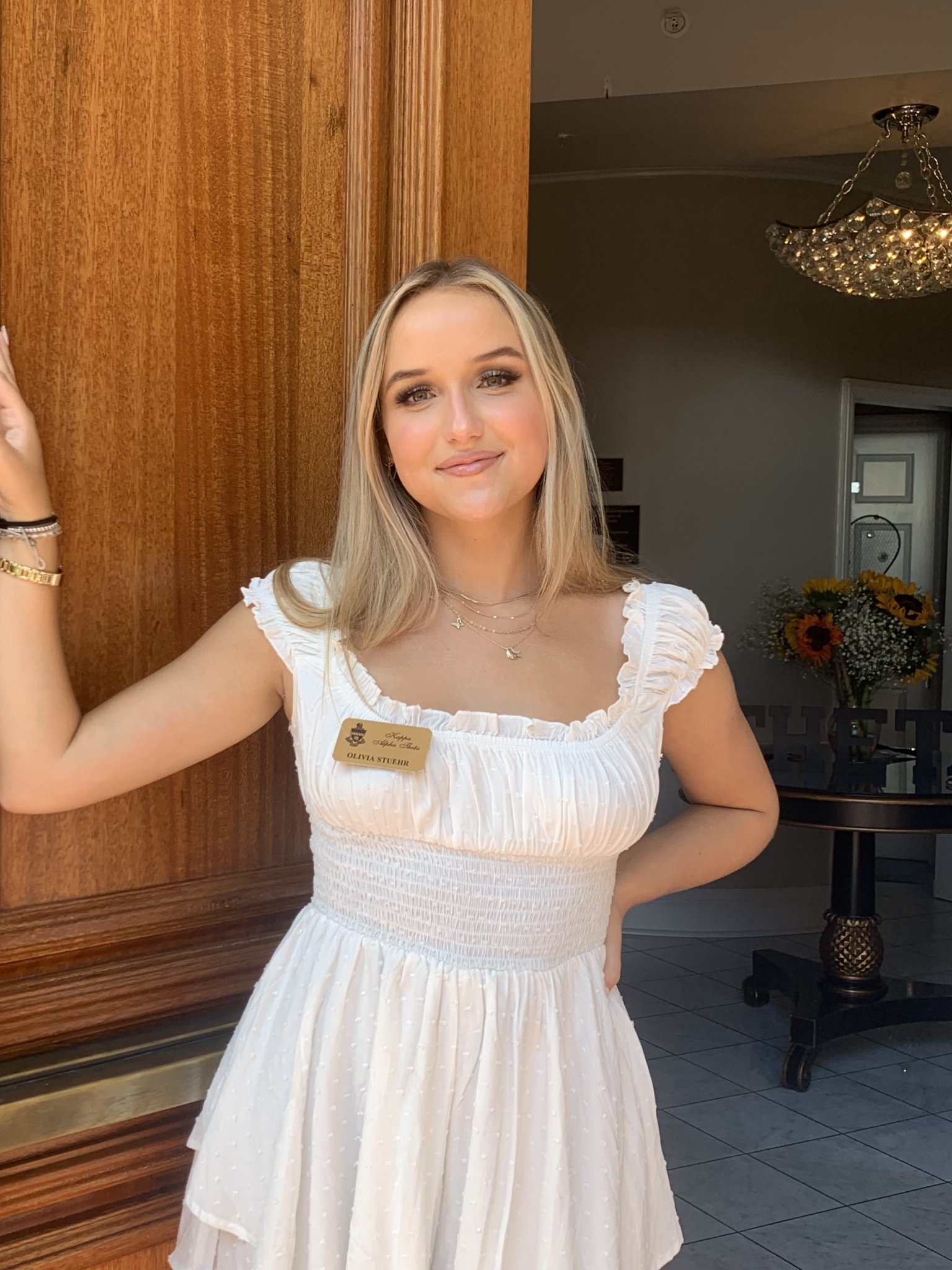
BIO
My name is Olivia Stuehr. I'm from Cleveland, Ohio and I'm majoring in Biological Sciences on a pre-medical track. I have been working in the Lazenby lab as an undergraduate researcher for almost 4 semesters now. My work consists of making sensors that detect various target molecules such as ATP and Dopamine out of microelectrodes. I also deposit gold nanostructures to the sensing platform and am continuing to alter deposition conditions in order to optimize sensor performance.
Optimization of gold nanostructured aptasensors for a multielectrode-array
Authors: Olivia Stuehr, Robert LazenbyStudent Major: Biological Sciences
Mentor: Robert Lazenby
Mentor's Department: Chemistry & Biochemistry Mentor's College: Arts and Sciences Co-Presenters: Jamma Lucky
Abstract
Electrochemical, aptamer-based (EAB) sensors are an emerging class of biosensors with promising applications for point-of-care (POC) devices and have been used to detect and quantify a wide range of biological and chemical analytes with high specificity. EAB sensors can be fabricated on numerous electrode surfaces such as gold. There are various methods of increasing the microscopic surface area and this is typically done to accommodate a greater number of aptamer probes on the surface to enhance the current response, which is particularly important for miniaturized sensors made from a 25-µm diameter wire. Previous attempts to increase the surface area have not thoroughly assessed the effects of gold morphology on the performance of EAB sensors on miniaturized sensors. Here, we used different electrodeposition conditions to deposit gold nanostructures on the microelectrode surface to increase the microscopic surface area, control surface morphology, and explore the resulting effects on EAB sensor performance. In order to evaluate performance, we fabricated sensors using aptamers specific to target analytes adenosine triphosphate (ATP) and dopamine (DA), then interrogated them using square wave voltammetry, and cyclic voltammetry. We can then apply these conditions and results to optimize sensing performance on a microelectrode array. The arrays are created using a custom-made 3D printed device which allows for the fabrication of closely placed microelectrodes. This creates a platform for microscale aptasensors which can be used for the simultaneous detection of multiple analytes.
Keywords: microelectrodes, 3D printing, aptasensors
23rd annual Undergraduate Research Symposium, April 6, 2023
Carter Thomas Poster Session 2: 1:30 pm - 2:30 pm/ Poster #74
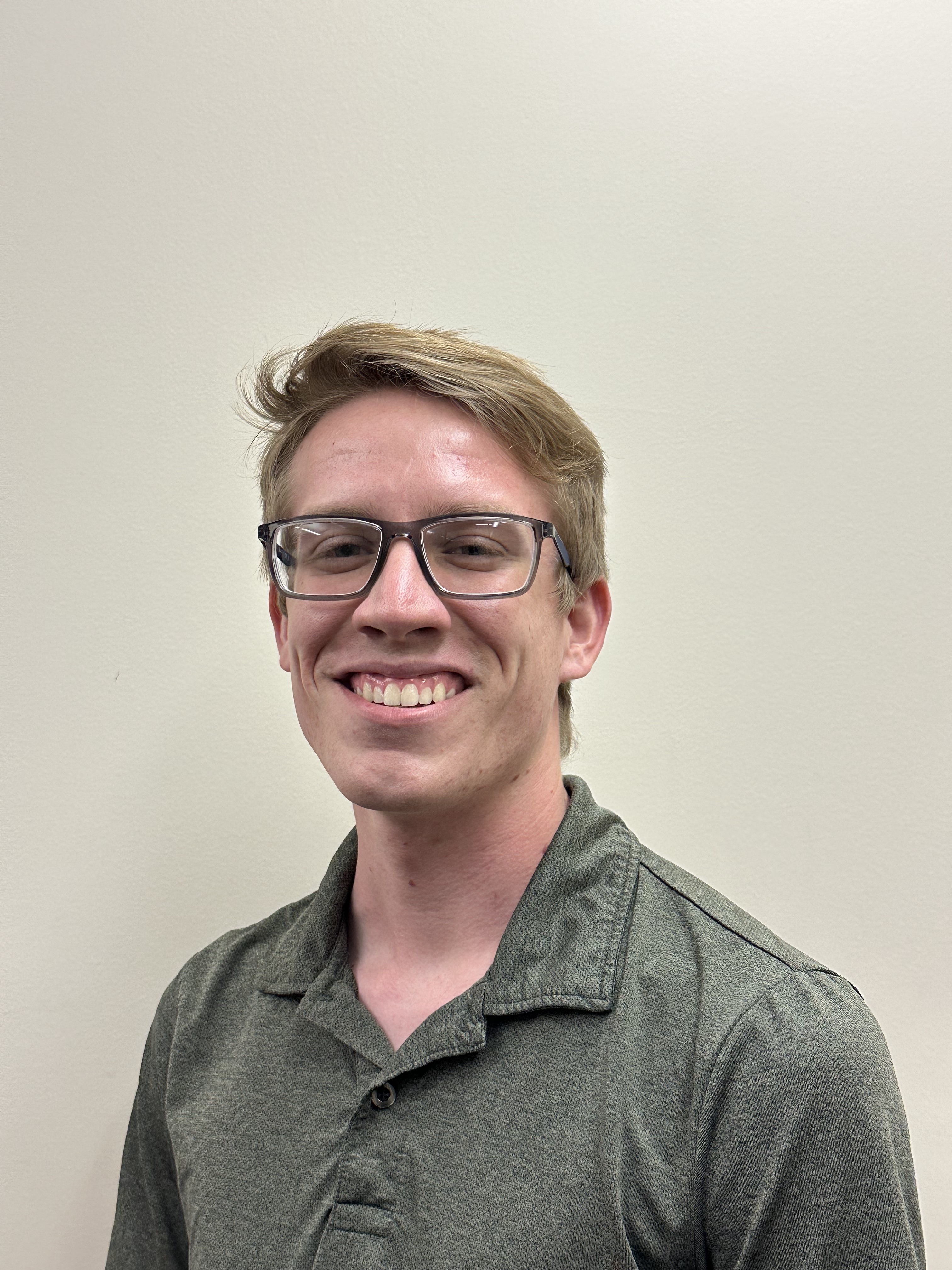
BIO
I am a sophomore here at FSU majoring in electrical engineering with a heavy interest in avionics and aeronautics. I have chosen to perform my research in the Center for Advanced Power Systems where I can bridge my interest in electrical engineering and aeronautics through the development of an all electric aircraft. I am also involved in the American Institute of Aerospace and Aeronautics where I have the opportunity to work with the avionics systems. In addition to my involvement with various campus clubs and organizations, I enjoy helping other students to respark their passion or provide them with the resources to succeed. I do this by working as a STEM Student Support Specialist in FSU's Academic Center for Excellence. I plan on pursuing a career in aeronautical systems and hope to once day acquire a professional engineering license and open my own engineering firm. In the mean time, I am enjoying my time in school through hands on research opportunities and involvement with on campus clubs and organizations.
Exploration of Zero Emission Aircraft
Authors: Carter Thomas, Peter CheethamStudent Major: Electrical Engineering
Mentor: Peter Cheetham
Mentor's Department: Electrical and Computer Engineering (ECE) Department Mentor's College: FAMU-FSU College of Engineering Co-Presenters:
Abstract
Most are aware of the devastation the airline industry is causing on our environment. The millions of miles of fuel that is gone through each day to get millions of people to their destinations. There is no doubt that the airline industry has turned into a foundational aspect of our society, but a foundational aspect that is slowly killing our society with all of the pollutants produced. This project is partnered with Integrated Zero Emission Aviation (IZEA) for multiple partner universities to come together and produce a hybrid electric aircraft. My UROP project has been involved with the high temperature superconductor (HTS) cables and their design and placement in the aircraft, along with the creation of a prototype of this aircraft to test the dimensions and where each generator and cable will lie. I am working on my UROP project individually, but apart of a much greater team of people that is working over the course of years to see this project come to light. There is a lot of planning and prototyping at this stage in the project, but this must be done and the proper research conducted before the hybrid aircraft will get off the ground.
Keywords: Airline, Electric, Hybrid, Aircraft, Propulsion
23rd annual Undergraduate Research Symposium, April 6, 2023
Connor Sherman Poster Session 3: 2:45 pm - 3:45 pm/ Poster #62
BIO
Hello! My name is Connor Sherman, and I am a senior graduating this Spring! During my time at FSU, I have been studying Applied Mathematics, Economics & History. I am also a Presidential Scholar, a UROP Leader, and a UROP Leader Mentor! My research engagements have ranged from measuring the impact of brain spillover from Universities on their local economy to the impact of the BLM movement on the productivity of academics. Currently, I am finishing up my final classes and working on my honors in the major thesis!
Measuring LGBTQ+ Discrimination: A Double List Analysis Assessing the Impact of Anti-LGBTQ+ Legislation
Authors: Connor Sherman, John HammanStudent Major: Applied and Computational Mathematics, Economics & History
Mentor: John Hamman
Mentor's Department: Economics Mentor's College: College of Social Science and Public Policy Co-Presenters:
Abstract
In this study, we assess the extent to which individuals in the United States misreport their attitudes regarding anti-LGBTQ+ educational legislation. Specifically, this study focuses on the Floridian bill HB 1557, or the “Don’t Say Gay,” bill, as it has been the center of media attention and has seemingly inspired similar pieces of legislation to be drafted throughout America. The gap between reported views and actual views is primarily the result of social desirability bias: the tendency of participants to respond dishonestly to questions when they believe that their answer opposes social norms. LGBTQ+ issues are controversial in American politics, so we utilize the inherently anonymous list experiment to minimize the prevalence of social desirability bias to elicit truthful responses from participants. We connect these findings to the literature about discrimination to assess the impact of anti-LGBTQ+ legislation on perceptions of LGBTQ+ people. We conduct two double list experiments to explore multiple facets of HB 1557. The size of the bias for each list will be estimated by a difference-of-means analysis and can be viewed as a lower-bound estimate of the population’s true views. This study was conducted via Prolific and gathered a sample that is representative of the larger American population on the basis of age, sex and race.
Keywords: LGBTQ+, Discrimination, HB 1557
23rd annual Undergraduate Research Symposium, April 6, 2023
Crystal Menzie Poster Session 4: 4:00 pm - 5:00 pm/ Poster #117

BIO
Hi! My name is Crystal Menzie. I was born and raised in Kingston, Jamaica but reside in Orlando, FL. I currently major in Behavioral Neuroscience and a minor in Chemistry. My career goals entail the pre-med route as an aspiring Neurosurgeon. My hobbies include cooking, watching television, and hanging out with my friends.
USING THE NETWORKED KNOWLEDGE ACTIVITIES FRAMEWORK TO EXAMINE LEARNING ON SOCIAL NETWORKING SITES
Authors: Crystal Menzie, Vanessa DennenStudent Major: Behavioral Neuroscience
Mentor: Vanessa Dennen
Mentor's Department: Education Mentor's College: College of Education Co-Presenters:
Abstract
Social Media has taken over society, especially among college students. Most college students engage with social media for various reasons. Whether it is connecting with family/friends, looking for tips that’s school related, or solely for pure entertainment. Social Media has been a primary focus for college students overall. The Networked Knowledge Activities (NKA) Framework (Dennen 2019). This framework is used to collect, curate, share, broker, negotiate and construct data. This is helpful to give researchers the ability to accurately understand different online networks within each activity.
Keywords: education, social media, tagging, college students
23rd annual Undergraduate Research Symposium, April 6, 2023
Meghana Varanasi Poster Session 4: 4:00 pm - 5:00 pm/ Poster #148
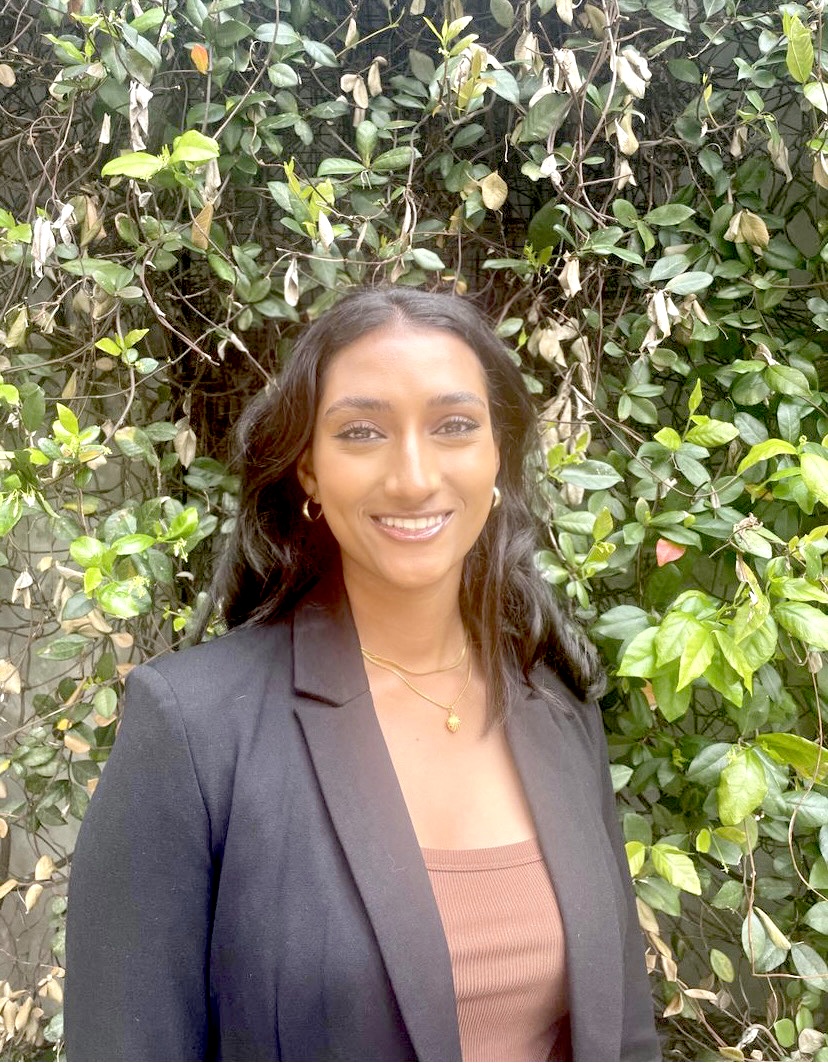
BIO
I’m from Miami, Florida and I’m conducting research and studies in the field of Criminology. I hope that one day all of these fruitful experiences will help me in my journey through law school and beyond. I’m very much interested in playing sports, advocating, leadership, and mentoring others. I am also very passionate about my work over at FSU’s Center for the Advancement of Human Rights. If there’s one thing I’m extremely passionate about, it’s literature. I enjoy reading all kinds of genres. I particulary love poetry. I feel as though my work in research is greatly aided by my reading hobby due to the vocabulary and writing skills I picked up over time. I would love to continue research in Criminology in the future, more specifically related to punishment and punitiveness in the Criminal Justice System.
Hate Crime and Typology: a Comprehensive Database for Federal Hate Crime Offenders
Authors: Meghana Varanasi, Brendan LantzStudent Major: Criminology
Mentor: Brendan Lantz
Mentor's Department: Criminology & Criminal Justice Mentor's College: Florida State University Co-Presenters: Mariana Hernandez, Sydney Buser
Abstract
Hate crimes are prevalent in the US. They can be violent or non-violent, and they can be directed towards any demographic/ group of people. The research we conduct serves to create a comprehensive database of federal hate crime offenders. The purpose of this is to modernize the data- the last such database is extremely outdated and is no longer representative of current trends. I will discuss how the work will allow researchers from many different fields to draw conclusions such as cause/ effect trends with hate crime and mental illness. I will talk further on how the database will aid the criminal Justice system in targeted detection and prevention for hate crime. One of the main things I will discuss will be the research methodology. We are given a master list of federal hate crime offenders ranging all the way from the early 2000’s to present years. As researchers, we have to choose offenders to code into the database. We have to use the internet and any/ all available sources to find out an array of information about the offender, their crime, the legal proceedings, and the victims. I will also talk about how our findings show that offenders often have previous histories of childhood victimizations or mental health illnesses. Because this is an ongoing project, any concrete conclusions have yet to be found. However, I have noticed a few specific trends while working on these cases.
Keywords: Hate Crime, Criminology, Crime, Offenders, Typology
23rd annual Undergraduate Research Symposium, April 6, 2023
Marley Hoffman Poster Session 4: 4:00 pm - 5:00 pm/ Poster #323

BIO
Hi, my name is Marley Hoffman I am from Union Township, New Jersey. I am a second year studying Biology with a minor in Environmental Science and Policy. I am part of the Marine Turtle Research, Ecology, and Conservation Group at FSU.
A Preliminary Examination of Vessel Characteristics to Inform Conservation of Marine Megafauna at Three Locations on Florida's Gulf Coast
Authors: Marley Hoffman, Julia SaltzmanStudent Major: Biology, Minor; Environmental Science and Policy
Mentor: Julia Saltzman
Mentor's Department: Department of Earth, Ocean, & Atmospheric Sciences Mentor's College: Florida State University College of Arts & Sciences Co-Presenters:
Abstract
Interactions with vessels have been identified as a threat to marine megafauna. Florida waters are home to many species of marine megafauna; however, there have been limited studies which assess the potential spatial overlap between these species and vessels. Here we aimed to assess the spatial overlap between vessels and locally important and imperiled species of marine megafauna (e.g., marine turtles and dolphins) at three locations on Florida’s gulf coast: St. Petersburg, Sarasota, and Destin. These were selected because they exhibit high rates of marine turtle strandings due to vessel strikes and because they are known tourist destinations, bringing in millions of visitors yearly. In order to assess the potential interactions between marine megafauna and vessels at these locations, we conduct systematically designed transects, where we record data on vessels and marine species present. During our transects, we record information on each vessel present within 200 M of our transects, including boat type, engine type, and activities of boaters. From this, we can disentangle temporal variation in the abundance of marine vessels and identify groups of boaters who are likely to interact with marine megafauna. While more data is needed to determine the extent of overlap between vessels and marine megafauna, this preliminary analysis demonstrates the utility of vessel-based transects to survey boat traffic and the characteristics of boaters. This information is invaluable, and we suggest it can be used for the development of targeted outreach campaigns and adaptive management strategies.
Keywords: marine megafauna, conservation, vessel interaction
23rd annual Undergraduate Research Symposium, April 6, 2023
Ashira Casanova Poster Session 2: 1:30 pm - 2:30 pm/ Poster #50
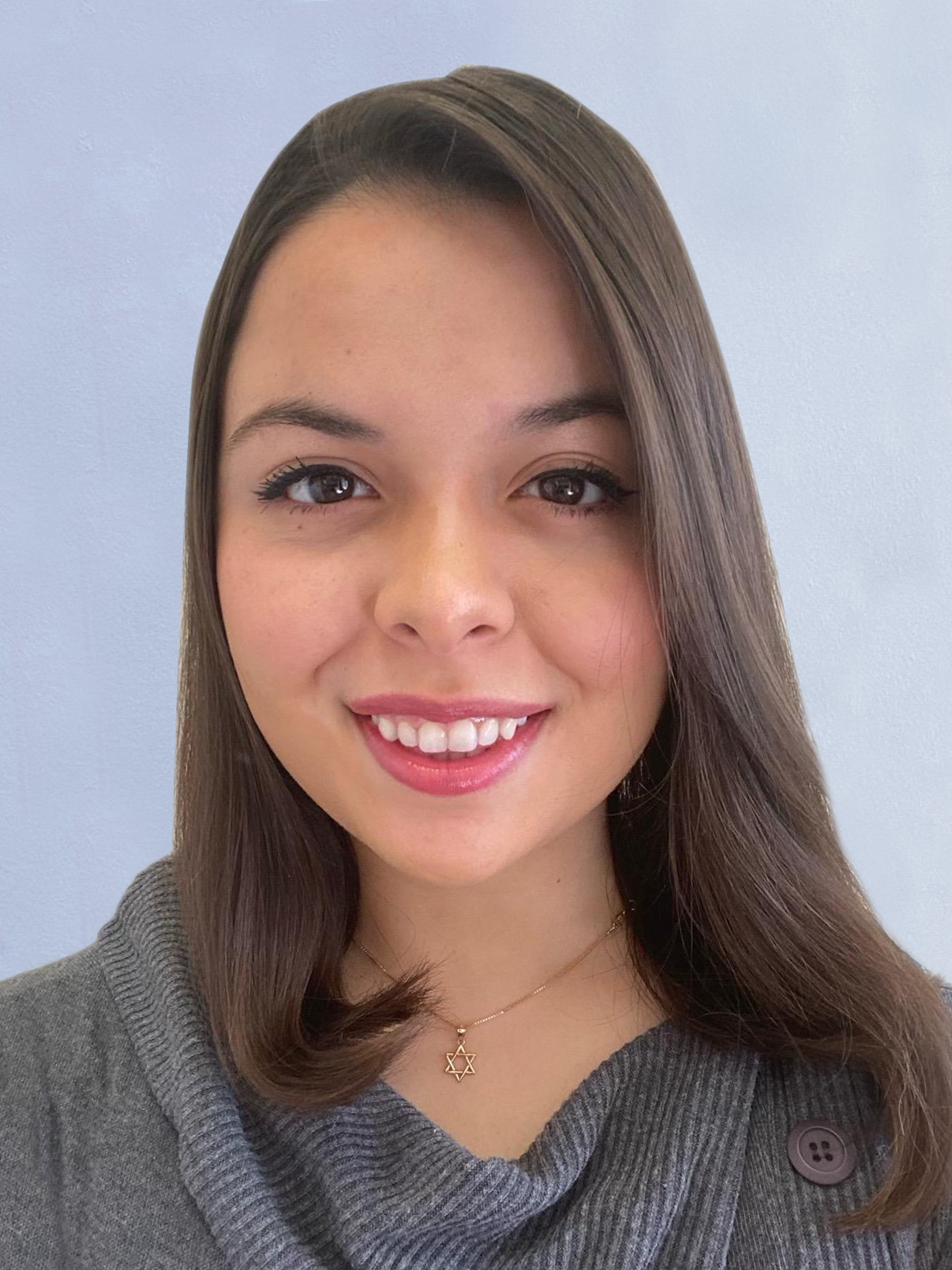
BIO
Ashira Casanova is a Florida State undergraduate student majoring in Public Health. Ashira has been involved as a student researcher at FSU’s DeVoe Moore center also known as Florida States' public policy research institute under the direction of Dr. Crystal Taylor. Ashira’s research interest encompasses multi-disciplinary fields such as public health, economics, and stem sciences in hopes of finding market-oriented solutions to critical public concerns. Ashira’s research project aims to uncover water quality issues presented pre and post-pandemic while utilizing the literary analysis to aid as a factor in predicting water quality standards within the United States.
Water Quality and Economic Development: A Review of Time Series Methodologies
Authors: Ashira Casanova , Dr. Crystal TaylorStudent Major: Public Health
Mentor: Dr. Crystal Taylor
Mentor's Department: DeVoe Moore Center Mentor's College: Florida State University Co-Presenters: none
Abstract
Wastewater treatment plants use biochemical oxygen to help clean our reclaimed, industrial, and domestic water supply. The United States is expected to see a rise in biochemical oxygen demand (BOD) from industrial, manufacturing firms, and agricultural production during 2021-2022 by nearly one percent. Moreover, there were over four hundred more National Pollution Discharge Elimination System facility permits purchased during the same timeframe. Interestingly, regulators have raised the maximum allowed point source chemical pollutants for permit holders. As a result of the poorer water quality standards, sewage treatment plants require more biochemical oxygen to combat water pollution. In an attempt to uncover and analyze the literature addressing water quality issues, this research asks, “Which model best fits the hypothesized relationship between biochemical oxygen demand and gross domestic product (also known as the Kuznets Curve hypothesis)? Drawing from economic development, environmental, and public health literature, key scholars suggest the 1995 Grossman and Krueger linear regression model best fits the hypothesized relationship and presented the generalized least squares as the recommended technique. In terms of policy recommendations, preparing future researchers with statistical training and proper techniques are precursory steps in addressing today's water quality crisis as well as a call for reformation of the 1972 National Pollution Discharge Elimination System program under the Clean Water Act. Rather than an overarching broad policy, applying acreage and pollutant standards at the local level could decrease the amount of needed BOD needed to combat water pollution in the United States.
Keywords: water quality, review time series

